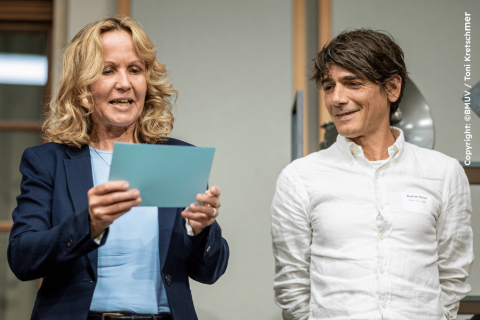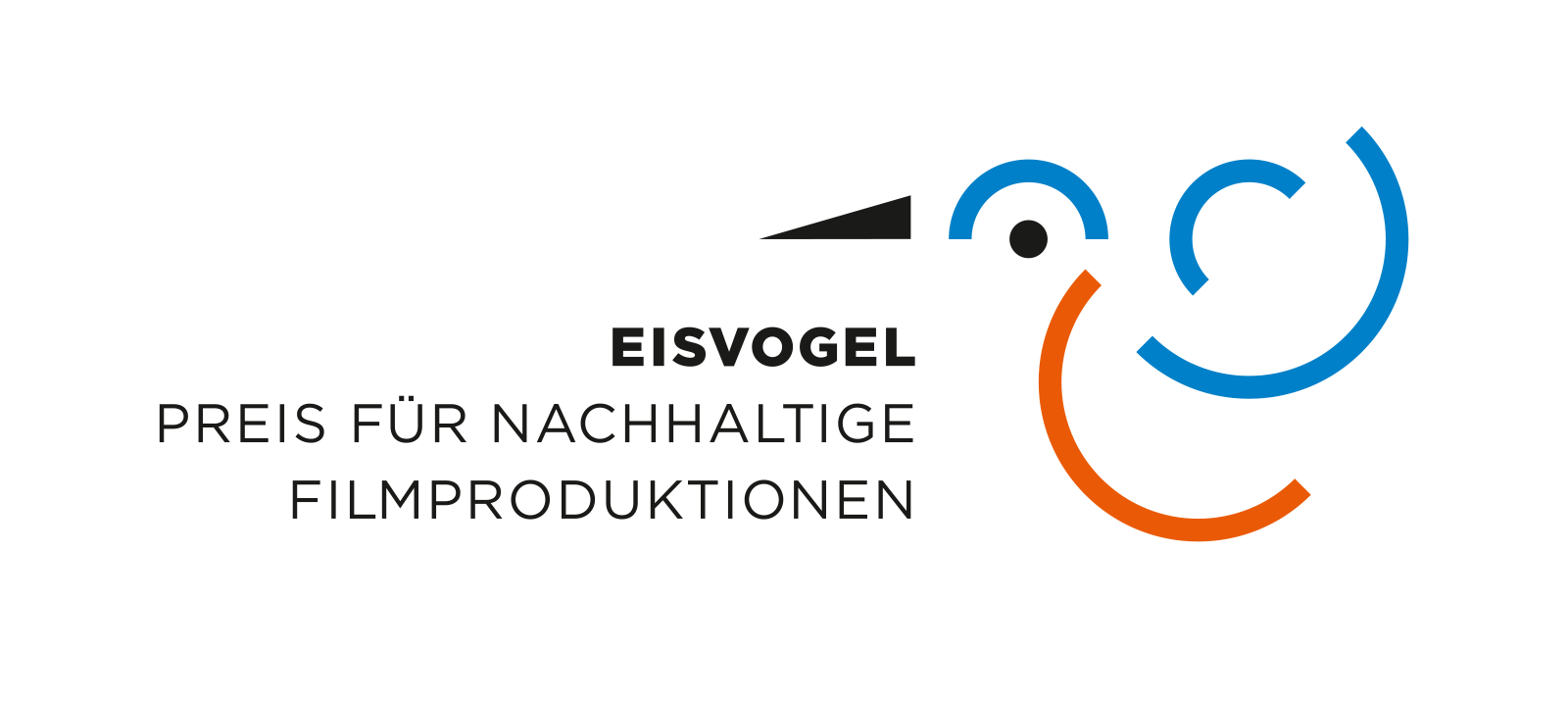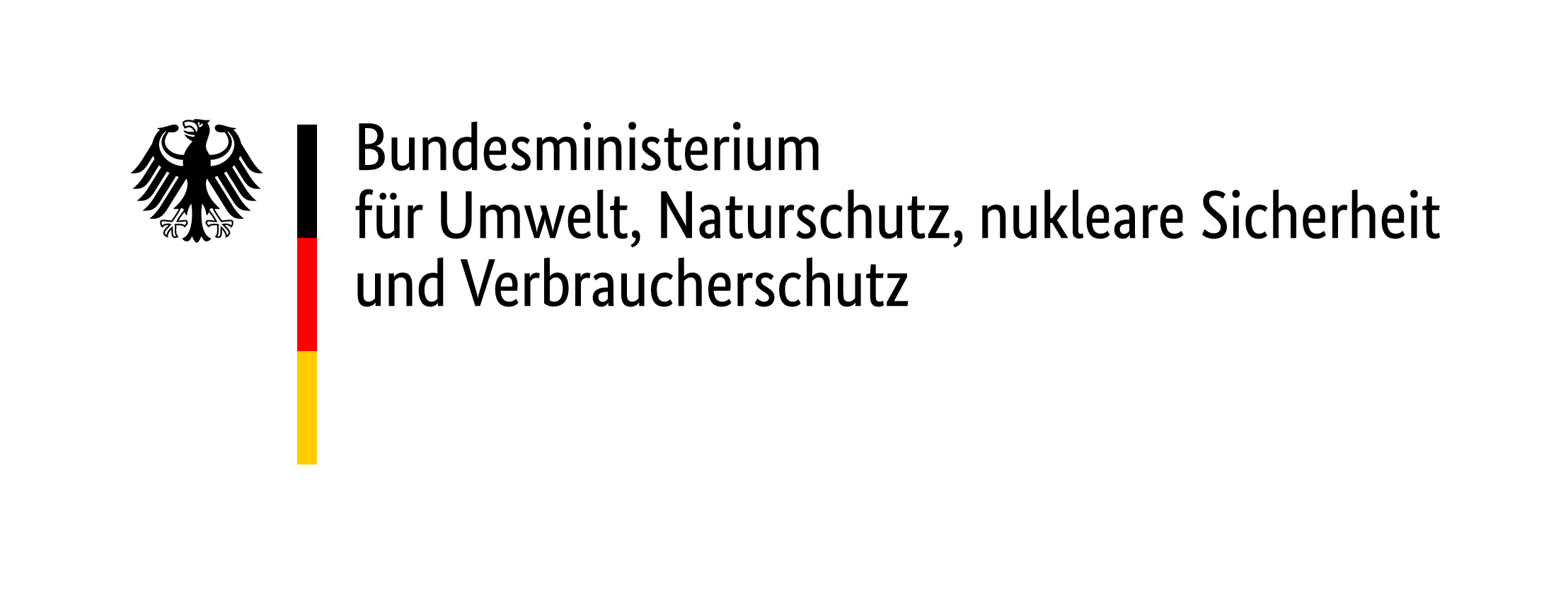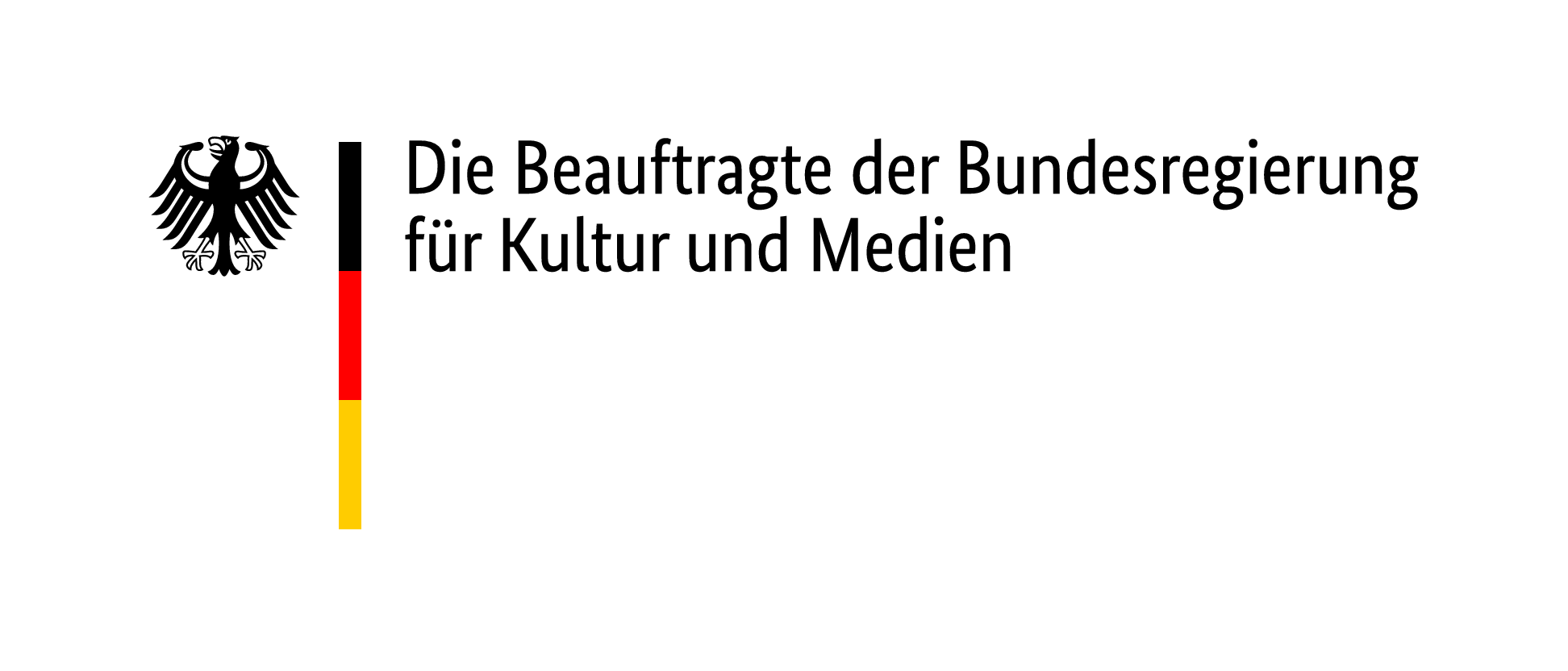Award Ceremony 23/24
The award ceremony for the 2023/24 competition period took place on February 15, 2024 in the courtyard of the Federal Ministry for the Environment in Berlin and in the presence of the Federal Minister for the Environment and Consumer Protection, Steffi Lemke and the Federal Government Commissioner for Culture and Media, Claudia Roth.
During the event, the nominated productions were introduced to an audience of industry professionals and the "Eisvogel – Prize for Sustainable Film Production" was handed over to the winning production.
During the event, the nominated productions were introduced to an audience of industry professionals and the "Eisvogel – Prize for Sustainable Film Production" was handed over to the winning production.
Award-winning Productions 23/24
Three award-winning productions of the Eisvogel 2024
The competition jury has decided to split the 2024 EISVOGEL Prize for Sustainable Film Productions in the main category between two award-winning productions. In doing so, the jury is recognising the very high quality of the content of all nominated productions.
In addition, the jury has selected a production from the field of young talent as the winner from a field of submissions that was also of very high quality.
Below are the reasons given by the competition jury for the three award winners.
In addition, the jury has selected a production from the field of young talent as the winner from a field of submissions that was also of very high quality.
Below are the reasons given by the competition jury for the three award winners.
Die Schule der magischen Tiere 3 (Award-winning production in the main category)
For this third instalment of the children's cinema series based on the popular series of novels by Margit Auer, produced by Kordes & Kordes Film Süd GmbH, a whole collective of green consultants pooled their knowledge and experience to unleash a great deal of "green potential".
The green production approach realised in this way went far beyond the ecological standards of the film industry and numerous innovative green measures were implemented with great motivation and conviction.
Thanks to an energy-optimised lighting concept, the targeted use of green electricity and the first-ever use of the battery-hybrid generator
hybrid generator "Kemama-Filmhybrid 30/60" mounted on an electric vehicle, emissions from diesel generators were effectively reduced despite a large number of "on location" shooting days.
The environmental impact was also significantly reduced in post-production, catering and many other areas.
(From the statement of the Eisvogel competition jury)
The green production approach realised in this way went far beyond the ecological standards of the film industry and numerous innovative green measures were implemented with great motivation and conviction.
Thanks to an energy-optimised lighting concept, the targeted use of green electricity and the first-ever use of the battery-hybrid generator
hybrid generator "Kemama-Filmhybrid 30/60" mounted on an electric vehicle, emissions from diesel generators were effectively reduced despite a large number of "on location" shooting days.
The environmental impact was also significantly reduced in post-production, catering and many other areas.
(From the statement of the Eisvogel competition jury)
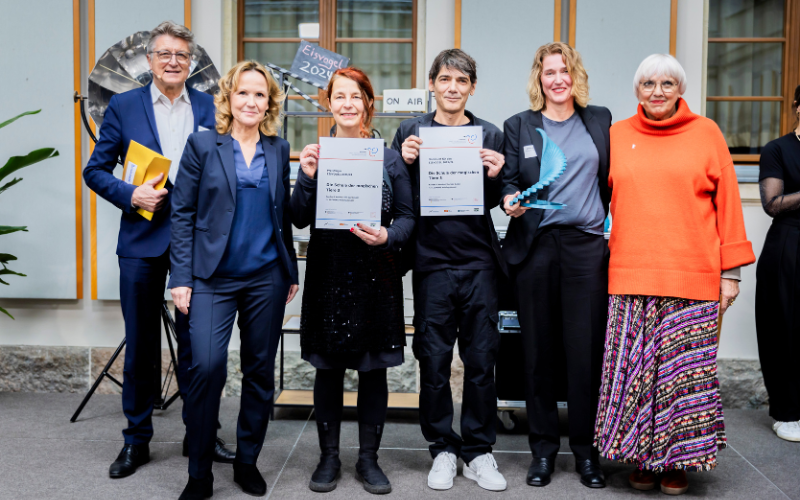
© BMUV / Christoph Soeder
C‘est le monde à l’envers ! (Award-winning production in the main category)
The French production company Bonne Pioche Cinema has set itself a clear but very ambitious goal for this film adaptation of a book by Nicolas Vanier, which will be completed at the end of 2023: "The organisation of a shoot in the countryside - completely without fuel!"
In order to achieve this ambitious goal, a comprehensive energy and mobility concept was developed and implemented with truly exemplary consistency. Important key points:
• The electricity on set was produced entirely with mobile solar panels. Some of this solar power was temporarily stored for times when the sun was not shining, and surplus electricity was even fed into the public power grid.
• The fleet of 28 electric vehicles were also charged on site at mobile charging stations, which were specially developed for this type of use "in the countryside" as part of the Tour de France.
(From the statement of the Eisvogel competition jury)
In order to achieve this ambitious goal, a comprehensive energy and mobility concept was developed and implemented with truly exemplary consistency. Important key points:
• The electricity on set was produced entirely with mobile solar panels. Some of this solar power was temporarily stored for times when the sun was not shining, and surplus electricity was even fed into the public power grid.
• The fleet of 28 electric vehicles were also charged on site at mobile charging stations, which were specially developed for this type of use "in the countryside" as part of the Tour de France.
(From the statement of the Eisvogel competition jury)
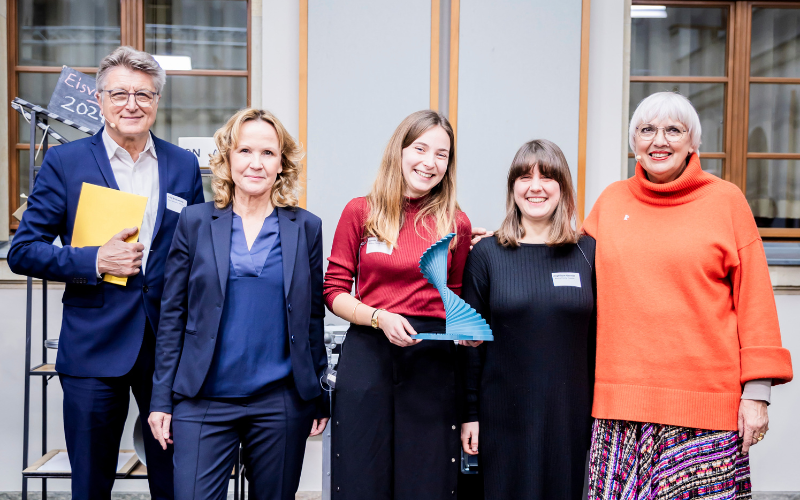
© BMUV / Christoph Soeder
Moddergat (Award-winning production in the newcomer category)
Elisabeth Köller produced this graduation film from the Deutsche Film- und Fernsehakademie Berlin GmbH. For the young producer, the consideration of environmentally relevant goals was an integral part of the planning at a very early stage.
For example, by consciously integrating the characteristics of the existing film locations into the creative concept, it was possible to significantly reduce the resources required for set construction and decoration. The realisation of these and many other measures through the joint commitment of all those involved is coherent and sympathetic.
The commitment in the end credits draws attention to the fact that honesty and transparency, and not just perfection, should be essential guidelines for green production, but also for our actions in general.
(From the statement of the Eisvogel competition jury)
For example, by consciously integrating the characteristics of the existing film locations into the creative concept, it was possible to significantly reduce the resources required for set construction and decoration. The realisation of these and many other measures through the joint commitment of all those involved is coherent and sympathetic.
The commitment in the end credits draws attention to the fact that honesty and transparency, and not just perfection, should be essential guidelines for green production, but also for our actions in general.
(From the statement of the Eisvogel competition jury)
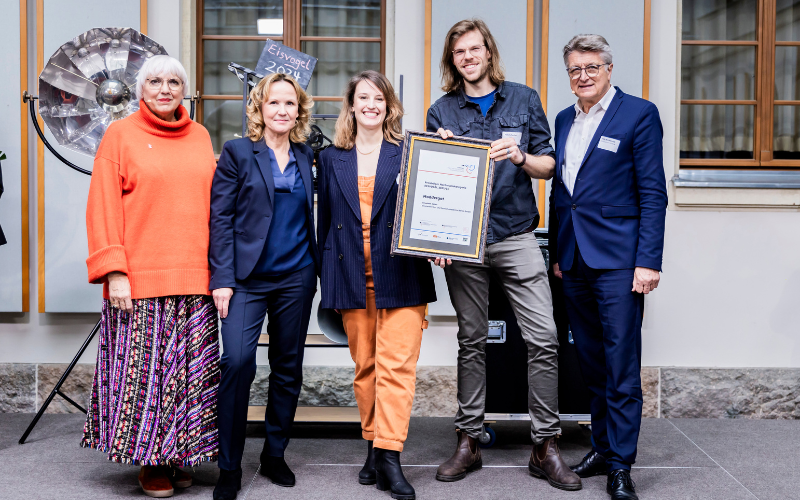
© BMUV / Christoph Soeder
Nominated Productions 23/24
A pre-selection committee of experts from the Association of Technical Companies for Film & Television (vtff), the Federal Association of Green Film & TV Consultants Germany (GCD) and Green Film Shooting has thoroughly examined the 34 submissions received from around the world in detail. From the broad field of submissions, outstanding productions in the main category 4 and the newcomer category 3 were nominated by the competition jury for the shortlist in terms of their fulfilment of the competition criteria.
The nominated productions are briefly presented below.
The nominated productions are briefly presented below.

© Eric Travers - Bonne Pioche Cinéma - Gaumont - 2023
C'est le monde à l'envers !
A very comprehensive and well thought-out energy and mobility concept was implemented for the French film adaptation of the book "C'est le monde à l'envers !" or "The world is upside down", which is expected to be released in cinemas in autumn 2024. The aim of this concept was to minimise emissions from these areas as much as possible.
For Nicolas Vanier's French film adaptation of the book "C'est le monde à l'envers !" ("The world is upside down"), which is expected to be released in cinemas in autumn 2024, a comprehensive and well thought-out energy and mobility concept was implemented in an exemplary manner. The aim of this concept was to minimise emissions as much as possible. To this end, three innovations were combined:
- The electricity on set was produced using mobile solar panels and the surplus electricity was fed into the public power grid.
- Some of the solar power generated was stored in an 11kW battery storage unit for use at different times
- Mobile charging stations, which are normally used at the Tour de France, were used to charge the 28 electric vehicles in total
- The electricity on set was produced using mobile solar panels and the surplus electricity was fed into the public power grid.
- Some of the solar power generated was stored in an 11kW battery storage unit for use at different times
- Mobile charging stations, which are normally used at the Tour de France, were used to charge the 28 electric vehicles in total
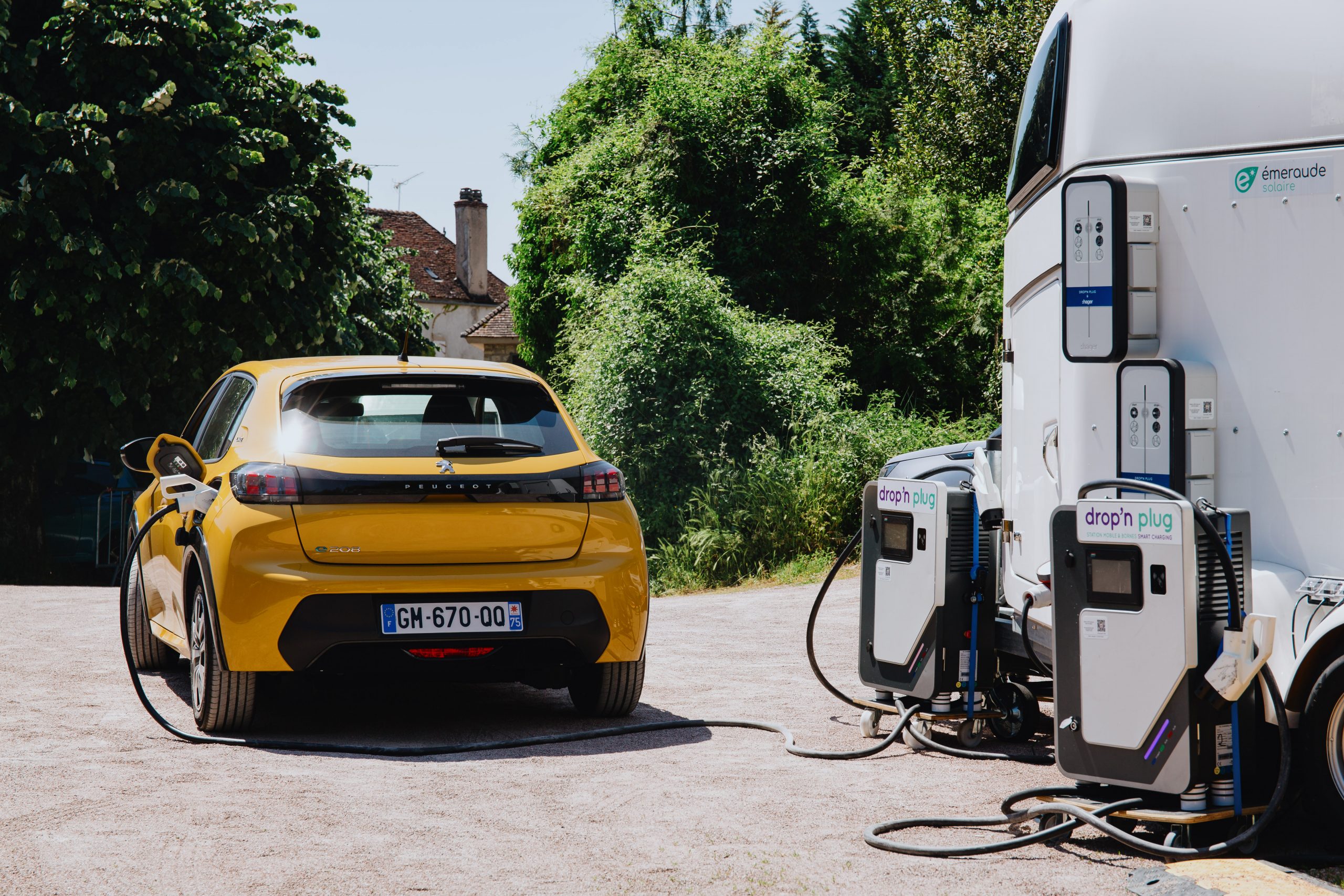
© Florian Alzay - Bonne Pioche Cinéma - Gaumont - 2023
Die Schule der magischen Tiere 3
"Die Schule der magischen Tiere 3" is the third part of the successful cinema franchise based on the popular series of novels by Margit Auer, produced by Kordes & Kordes Film. The first two films were each awarded the German Film Prize in the category "Most popular film" and the producers Meike Kordes and Alexandra Kordes were honoured with the Bavarian Film Prize for the second part.
"Katja Schwarz and Roman Russo have led a collective of experienced green consultants and assistants to unleash a great deal of creative green potential with innovative processes. Among other things, it is our first cinema film production in which CO2eq emissions are calculated in accordance with the ISO 14067 standard. The first use of the Filmhybrid 30/60, an electric vehicle converted into a power supply system that combines different energy sources in a unique way, made it possible to dispense with diesel generators and thus reduce CO2eq emissions. Another innovation was mobile solutions for closed water circuits, which contributed not only to catering but also to supplying the costume and mask mobile."
Lisa Plesser, CEO Grüner Werkzeugkasten / Green Toolkit
Lisa Plesser, CEO Grüner Werkzeugkasten / Green Toolkit
"Die Schule der magischen Tiere 3" will be released in German cinemas in autumn 2024. When planning the production and filming of the third instalment of the cinema series, which took place between July and October 2023, the green producing approach went far beyond the ecological standards of the film industry and numerous convincing and innovative green measures were implemented with great motivation and conviction.
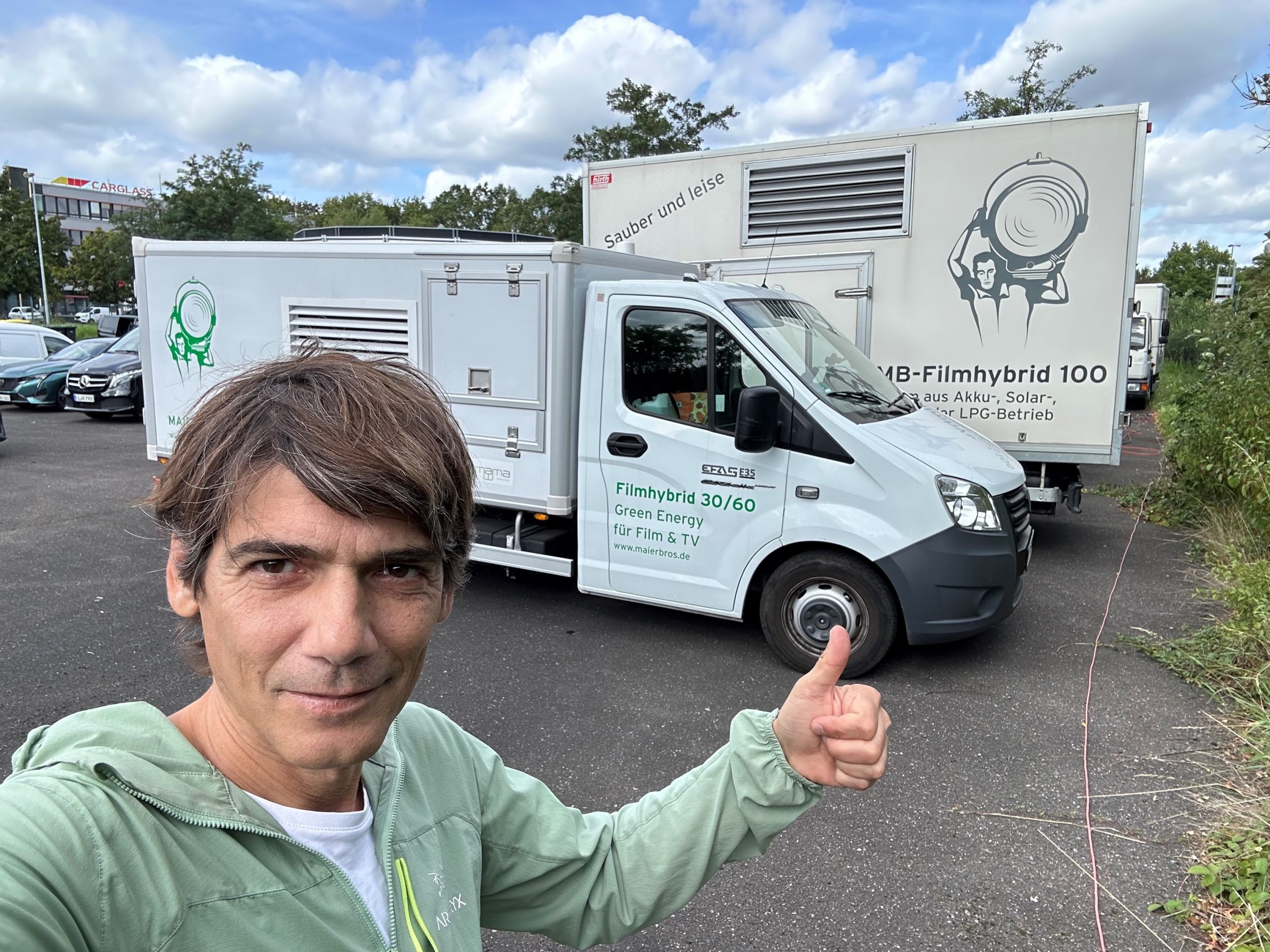
© Roman Russo
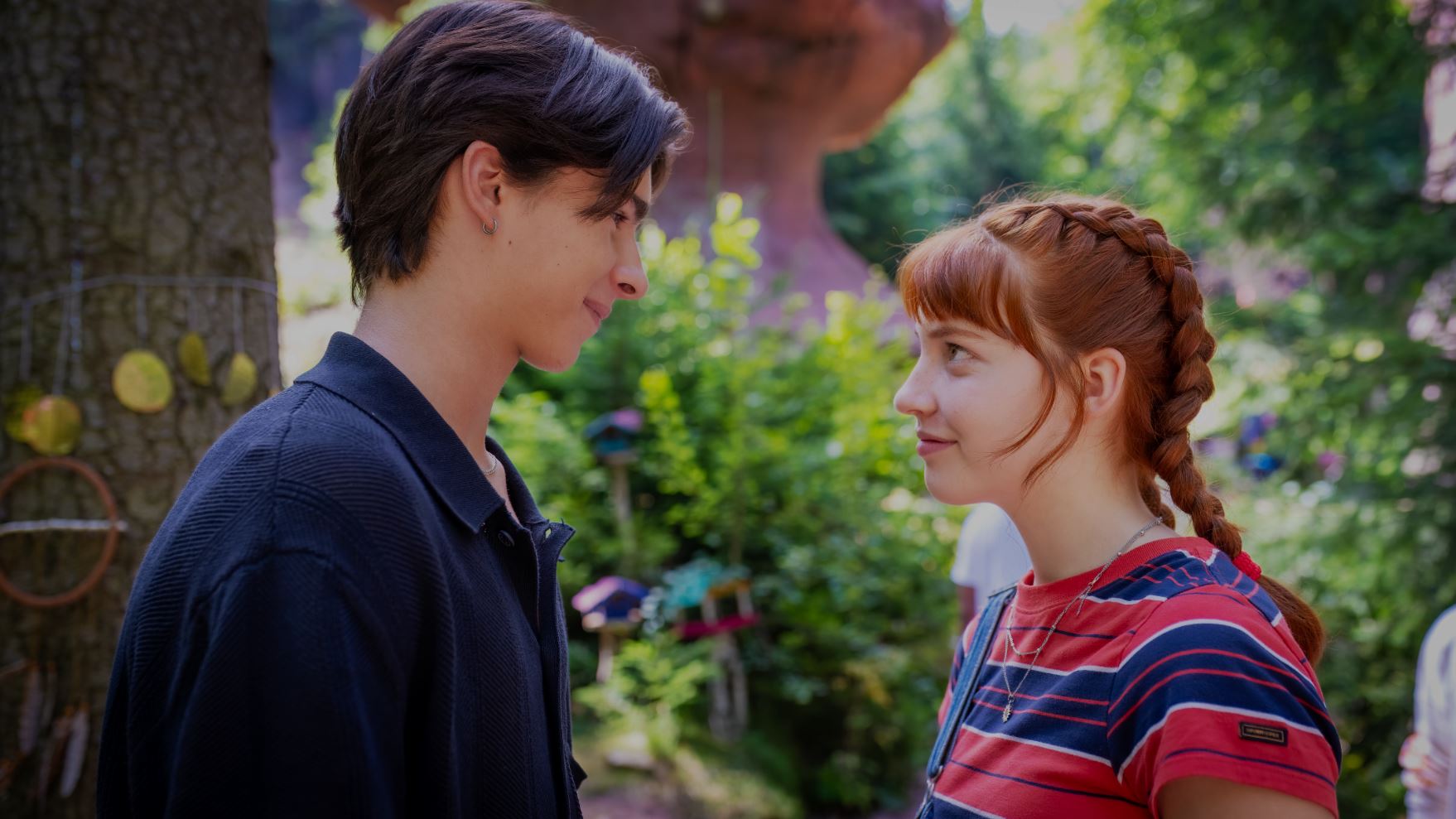
© Boris Laewen, Kordes & Kordes Film Süd
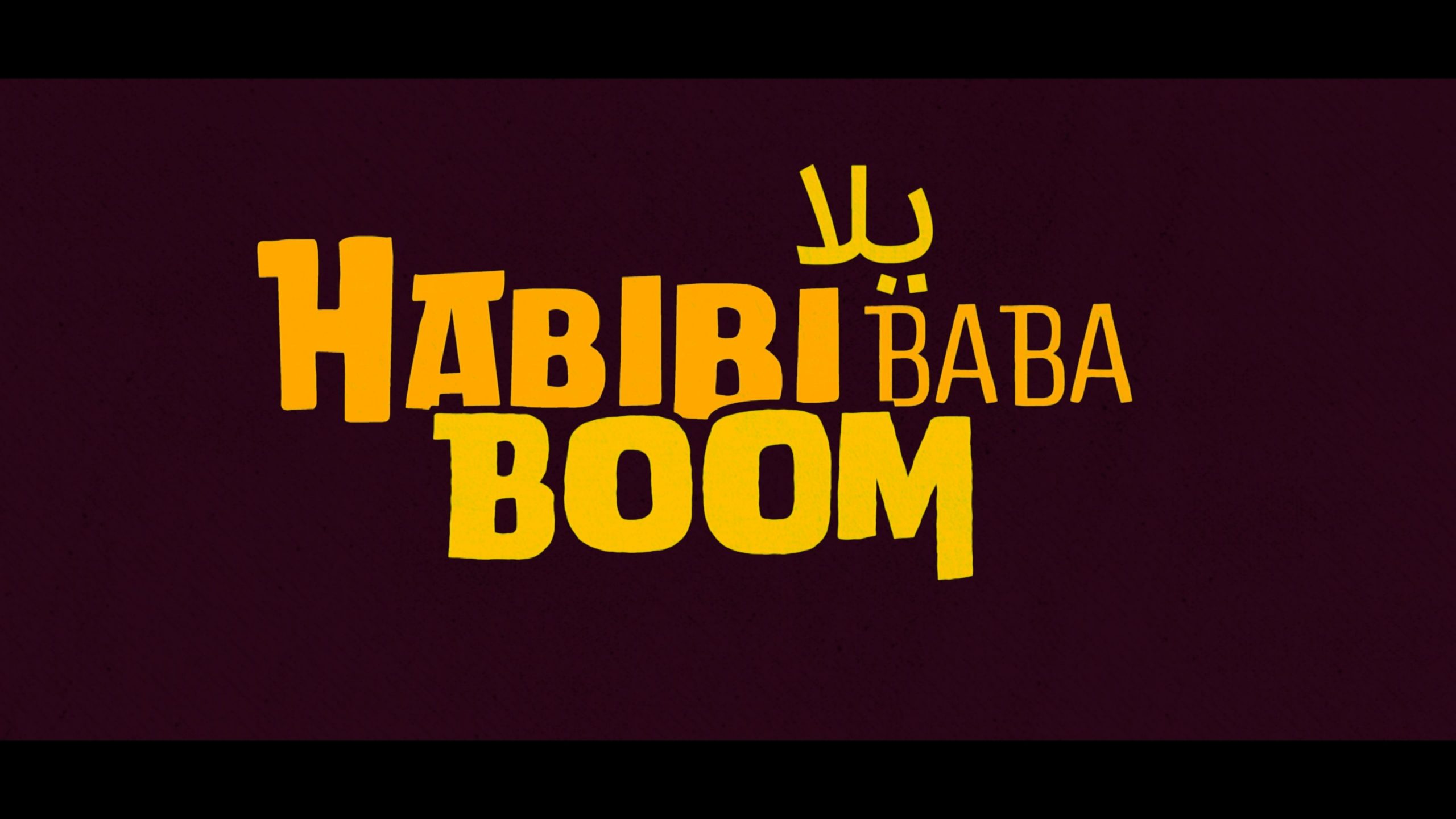
© Disney+
Habibi Baba Boom
"Habibi Baba Boom" is a streaming series that was produced on behalf of Disney+. During production, a series of very well thought-out measures were implemented that go well beyond the requirements of ecological production standards. Both the systematic approach and the courage to try out new solutions should be emphasised.
"We used the innovative SpeedSet rapid construction system for one of the main motifs in the Disney+ series 'Habibi Baba Boom'. We built a 6-room flat from prefabricated elements that are completely wood-free and consist largely of aluminium composite panels. The assembly and dismantling of the 100% recyclable elements took only a fraction of the time compared to an equivalent wooden construction. As the parts can be reused for any number of sets, they did not have to be disposed of after a single use. As a result, we were able to save around 330m² of timber construction materials in this production."
Thomas Matysiak, Green Consultant
Thomas Matysiak, Green Consultant
The use of the SpeedSet system for a complete motif on an area of 330 square metres over around 20 days of shooting is exemplary. Another special feature was the consistent use of reusable crockery, sometimes in combination with a mobile dishwashing trailer. Even a comparatively large number of extras were continuously supplied with reusable crockery over a number of shooting days.
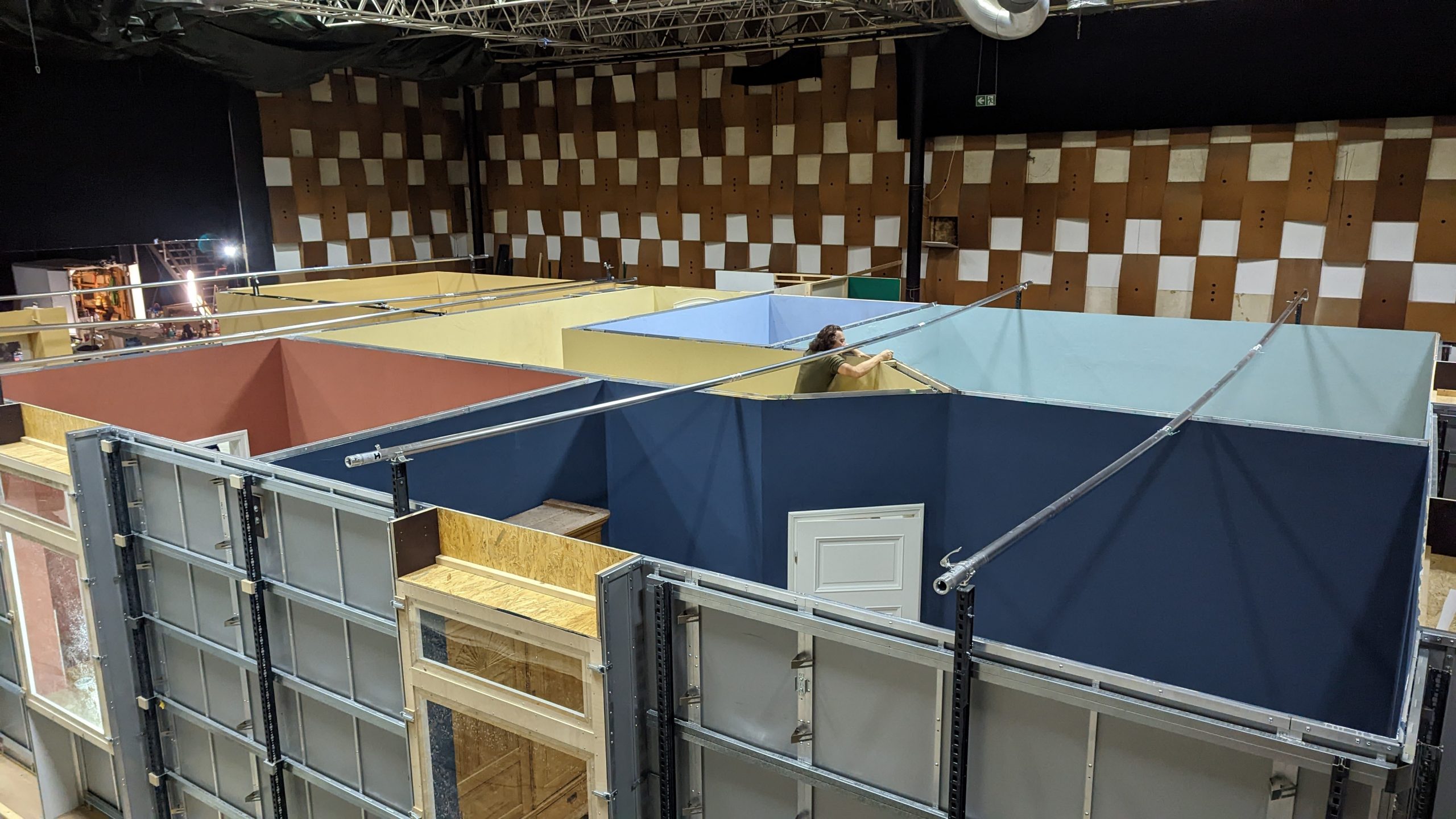
© Thomas Matysiak
Never Ever
During the production of "Never Ever" (AT), which was conceived as a streaming series for Amazon Prime and is due to be released in 2024, the topic of power supply and the necessary reduction in demand was discussed intensively in order to save as much CO2 as possible in the hot spots of transport and energy.
"By developing our lighting and power concept, we were able to reduce the power requirement to such an extent that we were able to completely dispense with a 'conventional' light generator with the help of fixed power, hybrid generators, solar generators and panels."
Thomas Matysiak, Green Consultant
"With the support of our client, we have pursued a holistic approach in addition to our electricity concept in production, involving all departments and, among other things, electrifying the vehicle fleet, offering catering with 'real' organic meat and thus obtaining the Green Motion Label and the EMA Gold Seal."
Sara Heidelbach, Line Producer
Thomas Matysiak, Green Consultant
"With the support of our client, we have pursued a holistic approach in addition to our electricity concept in production, involving all departments and, among other things, electrifying the vehicle fleet, offering catering with 'real' organic meat and thus obtaining the Green Motion Label and the EMA Gold Seal."
Sara Heidelbach, Line Producer
The production has ventured into new territory by using various innovative technologies. In addition to using the Filmhybrid 30/60 and Filmhybrid 100 to power the lighting crew, the 15 kVA hybrid bio-solar generator was also tested as a new and interesting technology to power parts of the base and to charge the fleet of electric vehicles on set. In addition, a solar panel was purchased to provide a self-sufficient power supply for the DIT vehicle. Large parts of post-production were powered by the company's own solar cells.
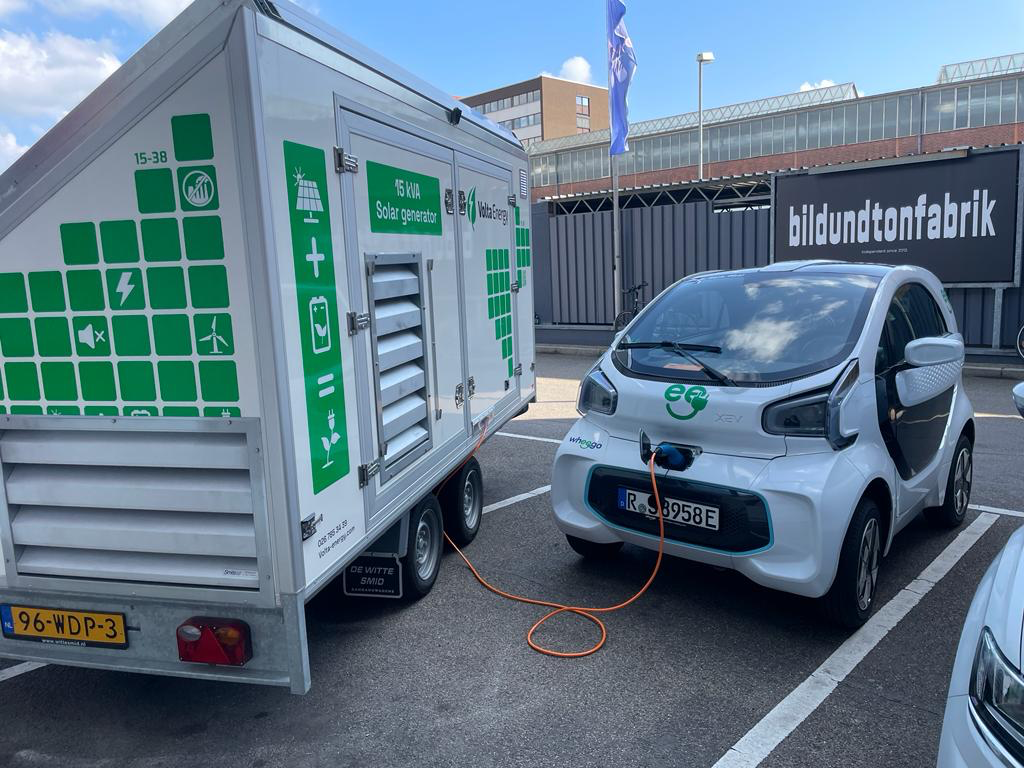
© Thomas Matysiak
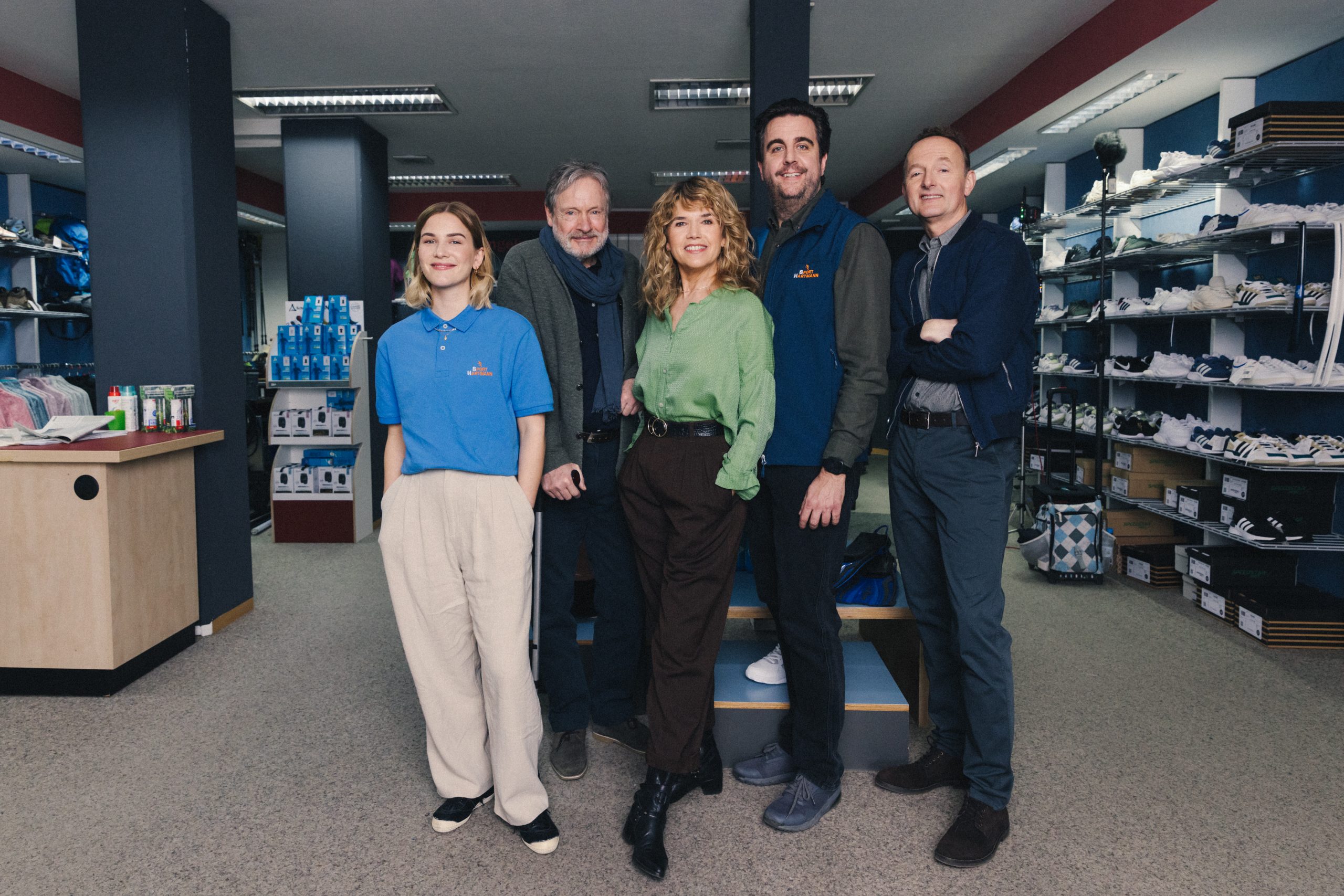
© Niren Mahajan & Amazon.com
Am Ende sind wir alle Gesang (newcomer production)
An indoor swimming pool, three women, a choir: Lilo wants to swim without water wings, Kira has to be the fastest and Frida wants to jump from the 10 metre tower. The three women from different generations casually meet in the microcosm of the swimming pool and learn in their own way what being strong actually means.
"We designed our film to be green right from the start. Right from the material development stage, this meant: just one motif, a small cast and a story that stands for sustainability with its attitude and values. This one motif came with some restrictions that demanded innovative production solutions and were therefore groundbreaking for an environmentally friendly realisation of the project. During the shoot, we mainly worked with natural light, avoided using sprinters and cars as far as possible and organised the catering with reusable crockery. Most of the cast and crew travelled to the location by public transport and the focus on one motif allowed for lean, efficient and sustainable logistics."
Thomas Slatter & Felix Sommer, producers
Thomas Slatter & Felix Sommer, producers
The film "Am Ende sind wir alle Gesang" was made as part of the degree programme at the University of Television and Film Munich (HFF) and was shot during ongoing operations at the Olympic swimming pool in Munich. Aspects of green storytelling and green producing were taken into account comprehensively and systematically during the development, planning and realisation of the film.
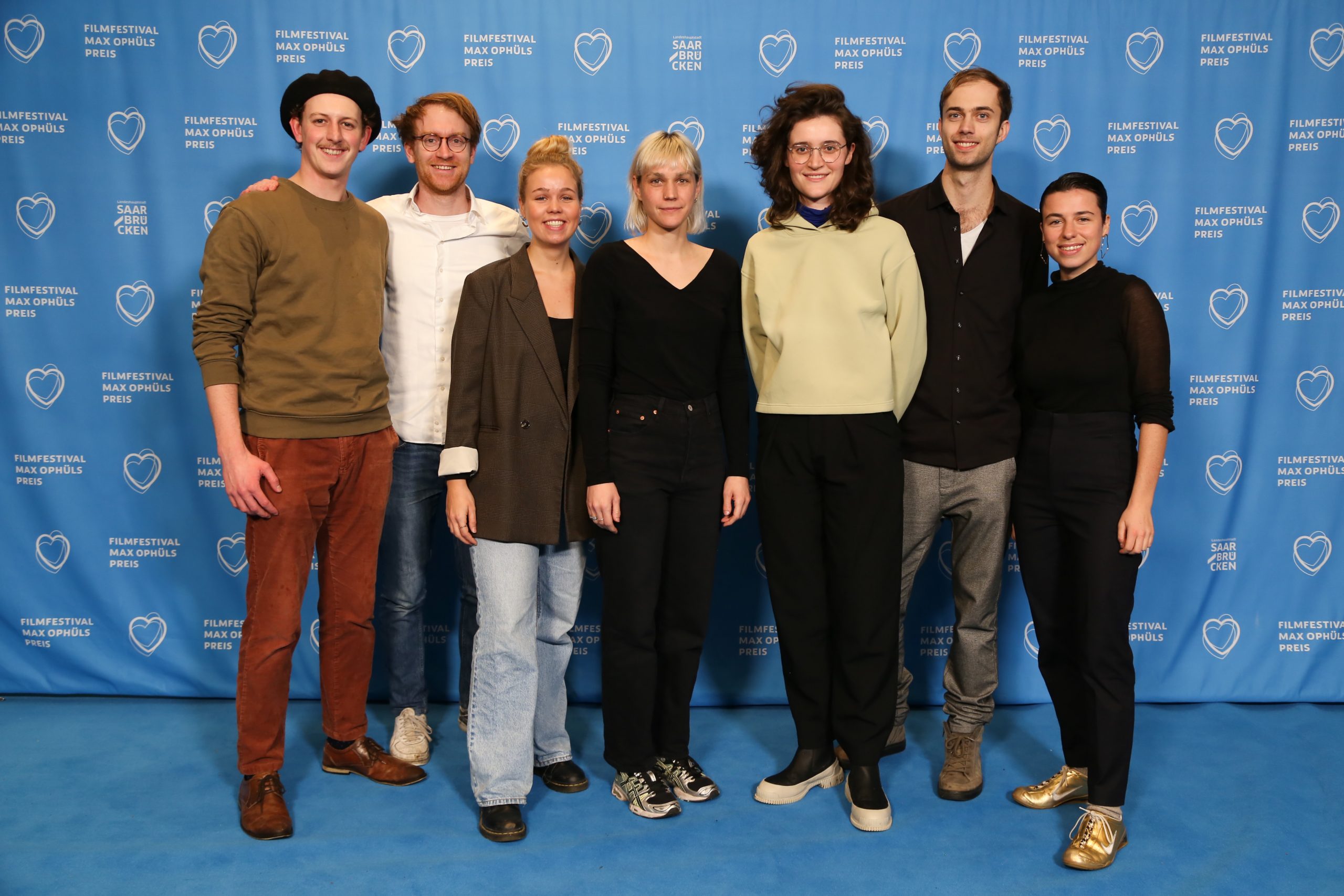
© Max Kullmann
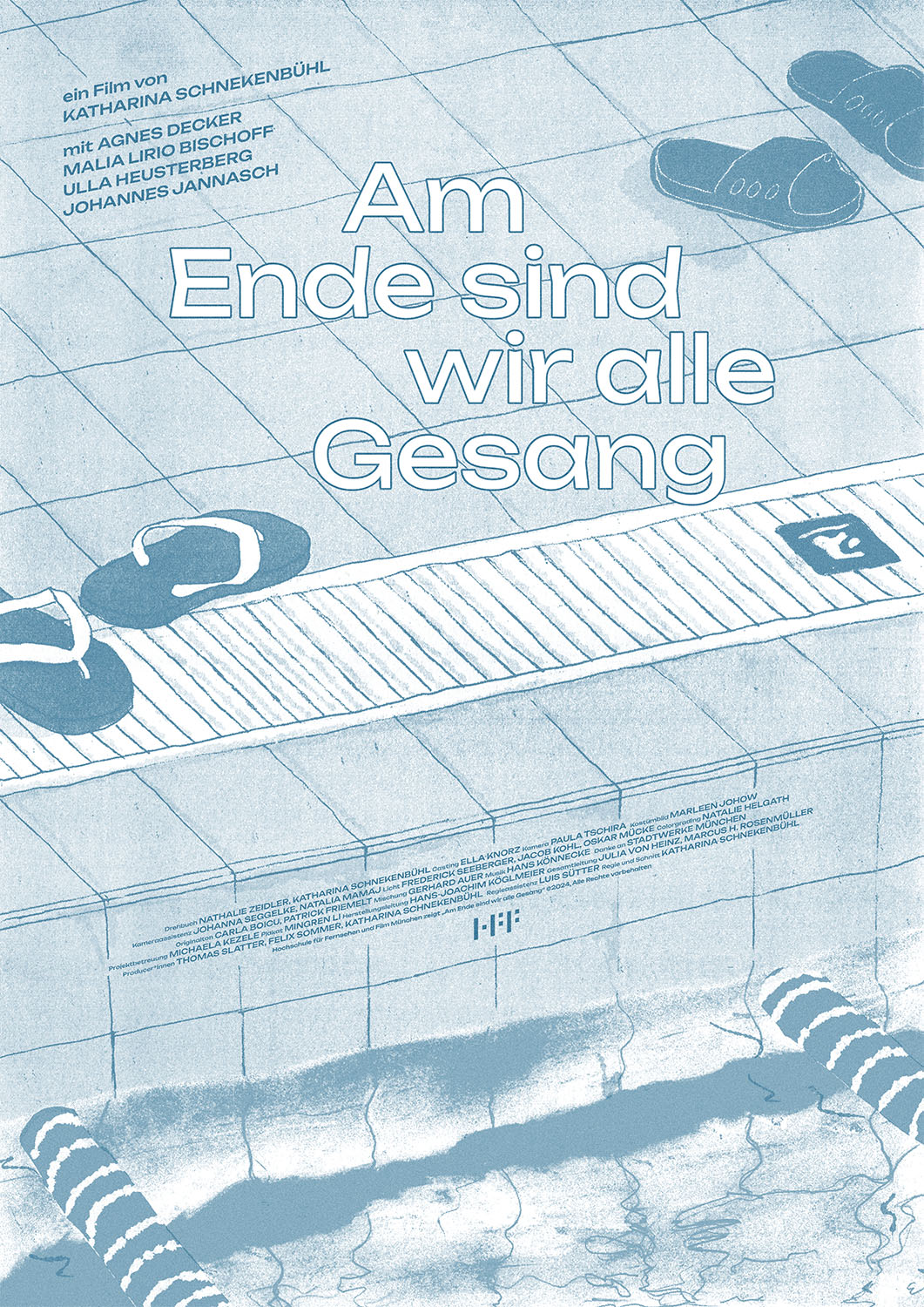
© Mingren Li
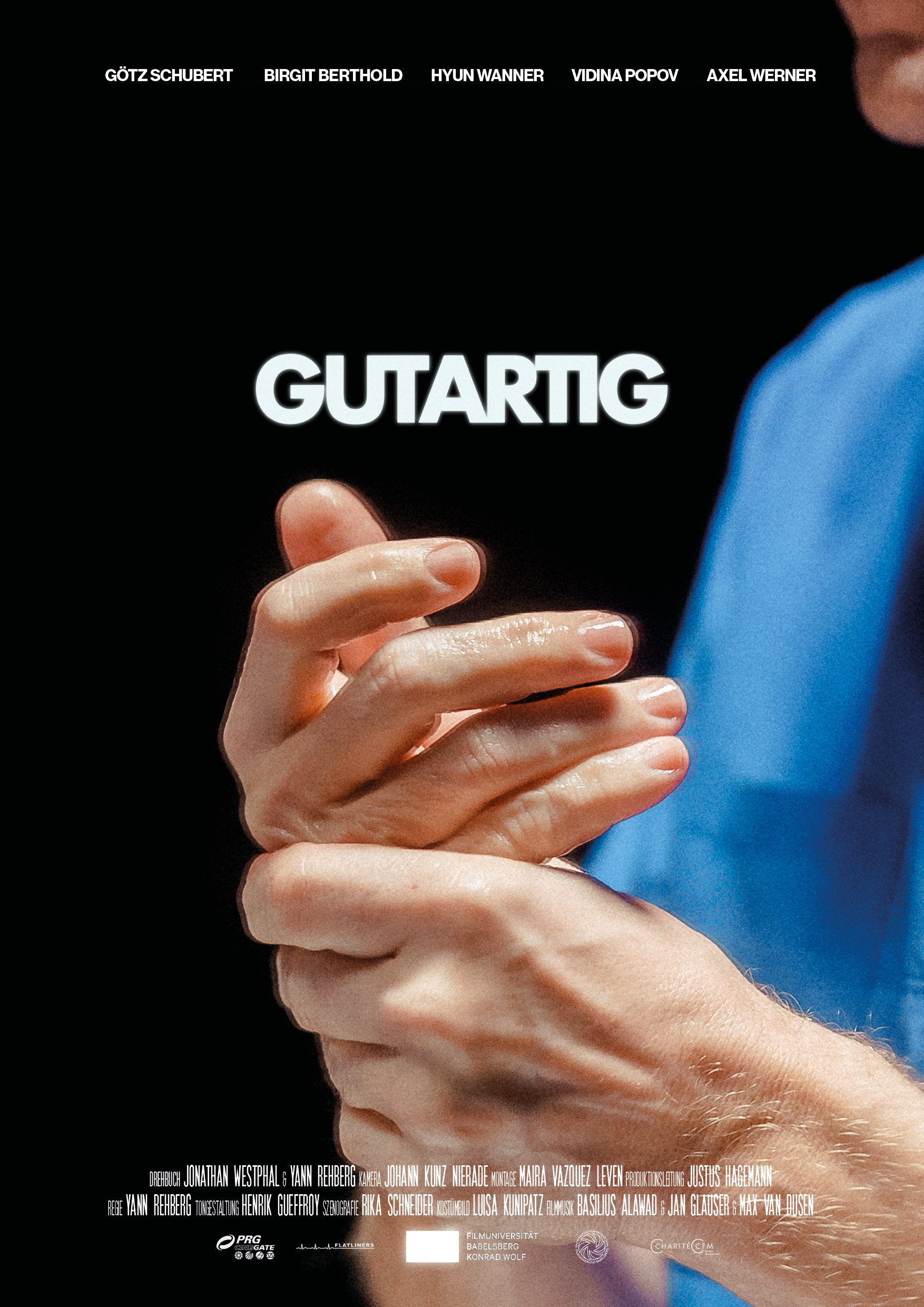
© SIMONREIHER
Gutartig (newcomer production)
"Gutartig" is a student production that is being created at the Film University Babelsberg KONRAD WOLF and will be completed this year. The measures are carefully planned and were implemented holistically with the support of a green consultant. In this case, in addition to the production itself, the deep anchoring of green production at the university is also impressive.
"As production manager, it was important to me to take a sustainable approach right from the development phase and to implement it right to the end, and fortunately I was able to rely on the full support of our team. By working closely with the green committee at our university, we were able to orientate ourselves on their action plan and had fun developing it further and also trying out new measures, which will hopefully motivate other productions to take another step towards a sustainable and greener future."
Justus Hagemann, Production Manager
Justus Hagemann, Production Manager
The use of a green consultant and the realisation and implementation of the focus on communication, which is accompanied by a transfer of responsibility, is particularly noteworthy for a student production. The waste concept in particular is exemplary and the creative and committed approach to dealing with and combating food waste is innovative and should also inspire other projects.
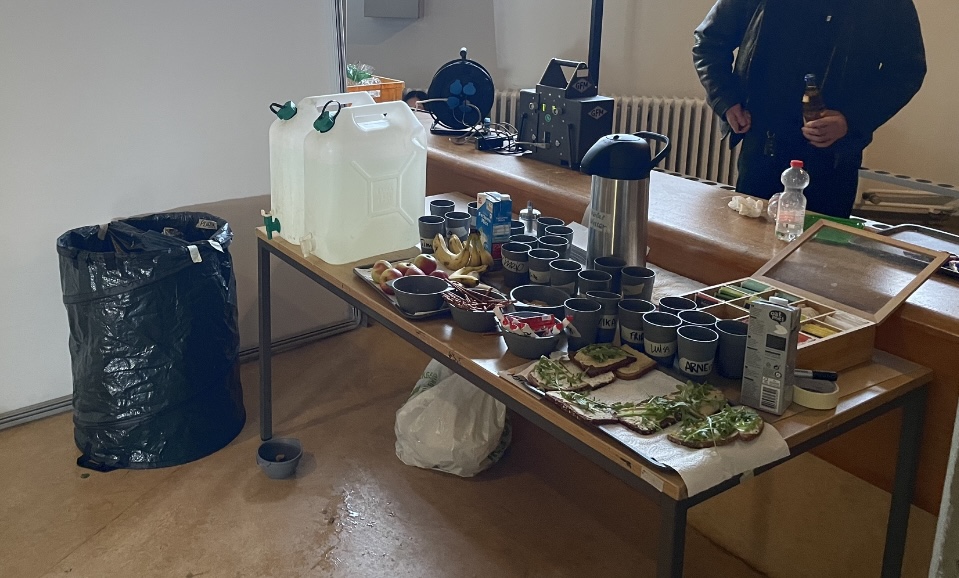
© SIMONREIHER

©
Moddergat (newcomer production)
"Moddergat" is a pre-degree film that was completed in 2023 at the German Film and Television Academy in Berlin. The consideration of environmentally relevant goals was an integral part of the planning at an early stage. By consciously integrating the characteristics of the existing film locations into the creative concept, it was possible to significantly reduce the resources required for set construction and decoration.
"MODDERGAT takes a two-pronged approach to the climate crisis: on the one hand, the film asks what we are personally willing to sacrifice for the common good and, on the other hand, we as a team have turned every screw to make production sustainable.
On the last panel of the film, we then proclaim with a wink:
95% of our CO2 budget is compensated through the climate bet
5% has been greenwashed"
Elisabeth Köller, producer
On the last panel of the film, we then proclaim with a wink:
95% of our CO2 budget is compensated through the climate bet
5% has been greenwashed"
Elisabeth Köller, producer
The realisation of these and other measures in the joint commitment of those involved is coherent and likeable. The story of the production, in combination with the commitment in the end credits, draws attention to the fact that honesty and transparency and not just perfection should be essential goals of green production and action in general.
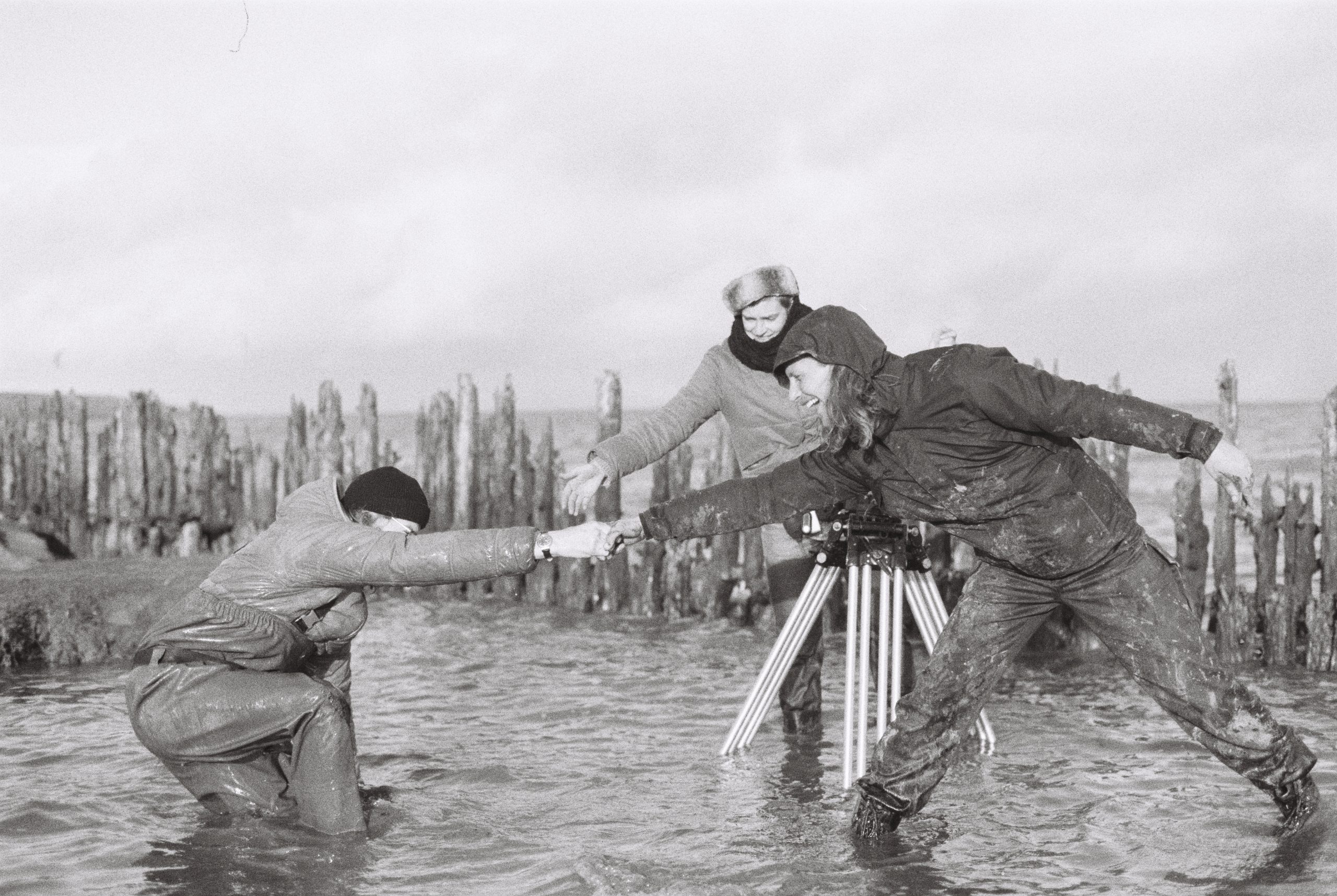
© Julia Schellekens
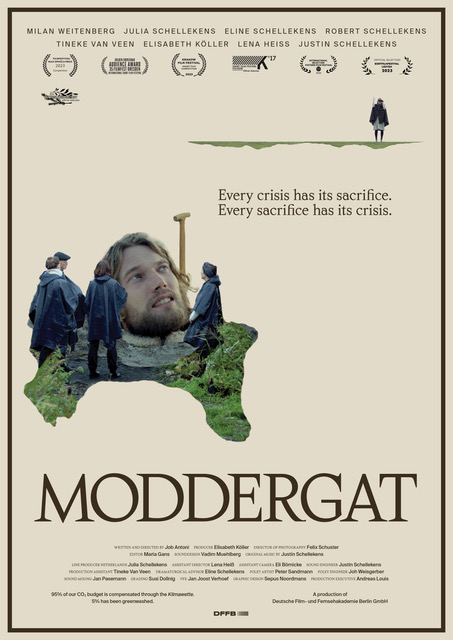
© Deutsche Film- und Fernsehakademie Berlin (DFFB)
Award Ceremony 22/23
The award ceremony for the 2022/23 competition period took place on February 16, 2023, in the courtyard of the Federal Ministry for the Environment in Berlin and in the presence of the Federal Minister for the Environment and Consumer Protection, Steffi Lemke, and the Federal Government Commissioner for Culture and Media, Claudia Roth, among personally invited guests.
During the event, the nominated productions were introduced to an audience of industry professionals and the "Eisvogel – Prize for Sustainable Film Production" was handed over to the winning production.
A movie shows impressions of the ceremony: Link
During the event, the nominated productions were introduced to an audience of industry professionals and the "Eisvogel – Prize for Sustainable Film Production" was handed over to the winning production.
A movie shows impressions of the ceremony: Link
Award-winning Productions 22/23
Three award-winning productions of the Eisvogel 2023
The competition jury decided to split the Eisvogel award 22/23 and award one production from the field of documentaries and one production from the field of fictional productions.
In doing so, the jury, chaired by producer Lars Jessen, considered the high quality of the many submissions on the one hand and the diversity of potential areas of improvement between documentaries and fictional productions on the other.
In addition, this year for the first time a prize was awarded for the newcomer productions.
Below you will find the reasons given by the competition jury for the three award winners.
In doing so, the jury, chaired by producer Lars Jessen, considered the high quality of the many submissions on the one hand and the diversity of potential areas of improvement between documentaries and fictional productions on the other.
In addition, this year for the first time a prize was awarded for the newcomer productions.
Below you will find the reasons given by the competition jury for the three award winners.
22. Juli – Die Schüsse von München (Award-winning production in the category documentary)
In the case of this documentary series produced internationally by Constantin Entertainment for Sky Deutschland in 2021, the systematic implementation of a Master Location Concept and a Remote Direction approach made it possible to reduce environmental impacts substantially. Both the complete avoidance of transatlantic flights and the significant reduction of filming locations and days saved approximately 27 tons of CO2. The very structured and systematic implementation of numerous other environmental measures is also emphasized.
Sky Deutschland made a clear commitment to climate-friendly film production at a very early stage, making it one of the pioneers of sustainable production in Germany. The European Sky Group has set itself a net zero target for CO2 emissions across the entire value chain by 2030. These aspects were also important factors in the jury's decision.
(From the statement of the Eisvogel competition jury)
Sky Deutschland made a clear commitment to climate-friendly film production at a very early stage, making it one of the pioneers of sustainable production in Germany. The European Sky Group has set itself a net zero target for CO2 emissions across the entire value chain by 2030. These aspects were also important factors in the jury's decision.
(From the statement of the Eisvogel competition jury)
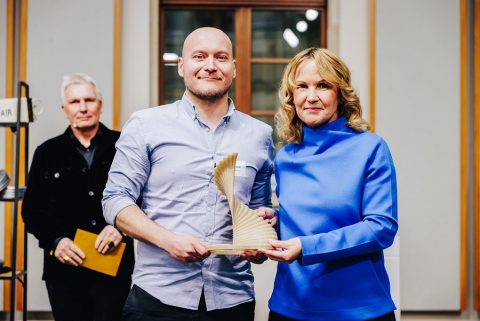
© BMUV / Christoph Wehrer
Irgendwas mit Medien (Award-winning production in the category of fiction)
In this eight-part mockumentary series for the ARD media library, UFA Serial Drama has realized a very consistent approach to green production. Already at the book level, scenes that were particularly resource-consuming were avoided, and transportation optimizations and walking distances played a role in the selection of filming locations.
Due to the use of cargo bikes, the motor-driven vehicle fleet could be minimized and CO2 emissions in this area could be reduced by about eighty percent.
In addition, during production, there was very active participation by the cast & crew to develop ideas for further environmental measures and to implement them consistently.
(From the statement of the Eisvogel competition jury)
Due to the use of cargo bikes, the motor-driven vehicle fleet could be minimized and CO2 emissions in this area could be reduced by about eighty percent.
In addition, during production, there was very active participation by the cast & crew to develop ideas for further environmental measures and to implement them consistently.
(From the statement of the Eisvogel competition jury)
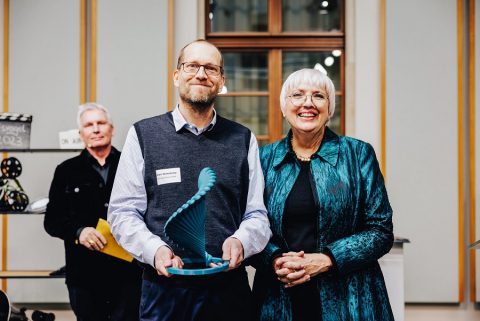
© BMUV / Christoph Wehrer
Exit Pangea (Award-winning production in the newcomer category)
In her graduation film from the Film University Babelsberg Konrad Wolf, producer Sarah Dreyer already focused on a holistic concept for reducing environmental pollution during the development phase.
The potential but also limitations of LED lighting were part of the visual design concept from the very beginning, and the reduction of material requirements was understood as a creative challenge for the book but also for the cast & crew on location. Through the direct involvement of all parties, many creative solutions could be developed and successfully implemented.
This learning system and the holistic approach make Exit Pangea an award-worthy production that is exemplary for the newcomer sector.
(From the statement of the Eisvogel competition jury)
The potential but also limitations of LED lighting were part of the visual design concept from the very beginning, and the reduction of material requirements was understood as a creative challenge for the book but also for the cast & crew on location. Through the direct involvement of all parties, many creative solutions could be developed and successfully implemented.
This learning system and the holistic approach make Exit Pangea an award-worthy production that is exemplary for the newcomer sector.
(From the statement of the Eisvogel competition jury)
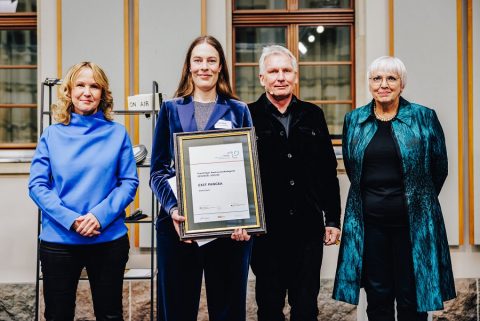
© BMUV / Christoph Wehrer
Nominated Productions 22/23
A pre-selection committee of experts from the Association of Technical Companies for Film & Television (vtff), the Federal Association of Green Film & TV Consultants Germany (GCD) and Green Film Shooting has thoroughly examined the 28 submissions received and shortlisted 9 productions in the main category and 5 productions in the newcomer category.
The nominated productions are briefly presented below.
The nominated productions are briefly presented below.

©
22. Juli - Die Schüsse von München
Thanks to the resource-saving transport concept, the number of on-location shooting days was reduced by almost 30 percent. This meant fewer hotel nights for the team, less use of vehicles and no flights. The savings achieved through the master location concept and remote production amounted to a reduction of around 27 tons of carbon emissions.
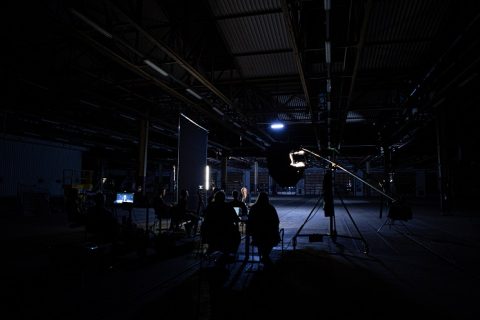
© Constantin Dokumentation
Cicero - Zwei Leben, eine Bühne
During the production of this documentary feature which was shot at fifty different locations in Germany and abroad, Latemar Film in particular focused on the mobility turnaround. The aim was to cut down carbon emissions while the production travelled across four countries and ten federal states.
"We wanted to be as effective as possible in order to meet the highest environmental and sustainability criteria. Thanks to a meticulous overall planning in advance, as well as logistical combinations starting from the first stage of development, more than eighty tons of carbon emissions were successfully avoided."
Katharina Rinderle, Producer
Katharina Rinderle, Producer
The approach of the production included predictive analyses and clever planning of the shooting in separate units, which took place in different parts in the various regions. The pooling of shooting locations as well as casting team members in double functions led to the efficient work of the crew and the use of technology.
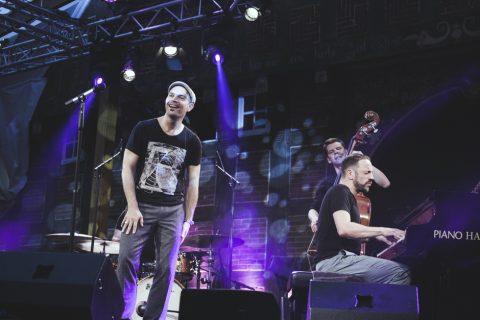
© Constantin Dokumentation
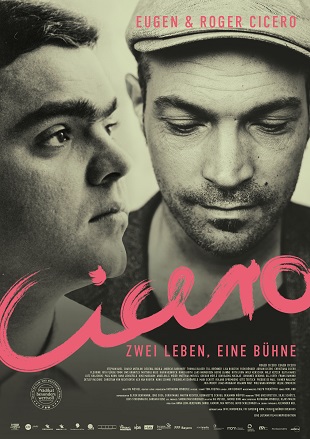
©
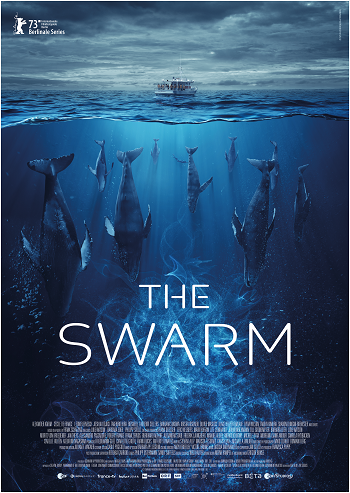
© ZDF and Staudinger + Franke / [M] Serviceplan
The Swarm
Produced as an international co-production with six countries, the German TV broadcaster ZDF brings Frank Schätzing's bestselling novel to the screen in an eight-part series which will celebrate its premiere at the Berlinale Series. During the shooting that took place between the spring of 2021 and the end of 2022 in Italy and in the water studio in Belgium, the use of Set VFX Extensions made it possible to avoid material-intensive construction.
"Before the principle photography began, we discussed and subsequently determined with NDF and Itaglio Films the best possible eco-friendly structure for the entire project. Instead of shooting in Norway, Peru, Canada, Germany, Japan, France, and Switzerland, everything was shot in Italy and Belgium, which resulted in huge savings in transportation as well as commercial flights. Therefore we saved an additional 700 tons, if not more, of carbon emissions. So we cut the production’s carbon footprint almost by half."
Philip Gassmann, Green Film Expert and Green Consultant
Philip Gassmann, Green Film Expert and Green Consultant
A "Transportation Captain" was tasked with reducing transportation as much as possible. Efficiency, synergies, and multiple-use dynamics were the main considerations. Train transportation was used to reach Italian locations outside of Rome.
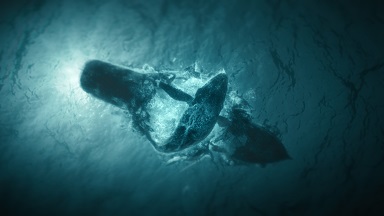
© ZDF and Schwarm TV Production GmbH & Co. KG.
Irgendwas mit Medien
When developing this eight-part mockumentary series, UFA Serial Drama took the approach to avoid resource-wasting scenes at the script level. As a result, the vehicle fleet was reduced to a minimum and carbon emissions were cut by around eighty percent. Efficient transportation options and walking distance were selection criteria for the filming locations.
"If you want to produce sustainably, that means finding clever solutions in many places and thinking outside the box. You need to be really convinced to do that. From bicycles to reusable tableware."
Helga Löbel, Producer,UFA Serial Drama
"I'm very pleased that we successfully implemented the minimum ecological standards at the production of Irgendwas mit Medien for the first time so that we received the 'green motion' label. This was only possible because sustainability was such an important topic for every crew member that they adjusted the workflows. I hope that it won’t be a big deal anymore for future projects to comply with the minimum ecological standards, but rather become the standard."
Marc Waterkamp, Production Manager and Green Consultant, UFA Serial Drama
Helga Löbel, Producer,UFA Serial Drama
"I'm very pleased that we successfully implemented the minimum ecological standards at the production of Irgendwas mit Medien for the first time so that we received the 'green motion' label. This was only possible because sustainability was such an important topic for every crew member that they adjusted the workflows. I hope that it won’t be a big deal anymore for future projects to comply with the minimum ecological standards, but rather become the standard."
Marc Waterkamp, Production Manager and Green Consultant, UFA Serial Drama
Greater flexibility was a big advantage as the team was able to react more quickly. By reducing the fleet of vehicles, the carbon footprint for this UFA series production was reduced to 6.3 tons of carbon emissions. An additional side effect caused the cost saving of renting and maintaining the vehicle fleet, as well as the fees for parking spaces.
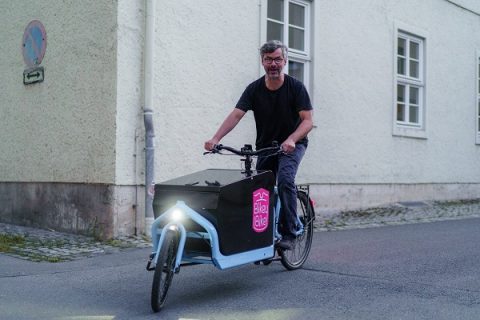
© MDR / UFA Serial Drama / Sascha Hoecker
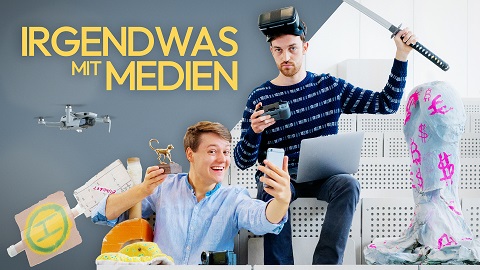
© MDR / UFA Serial Drama / Sascha Hoecker
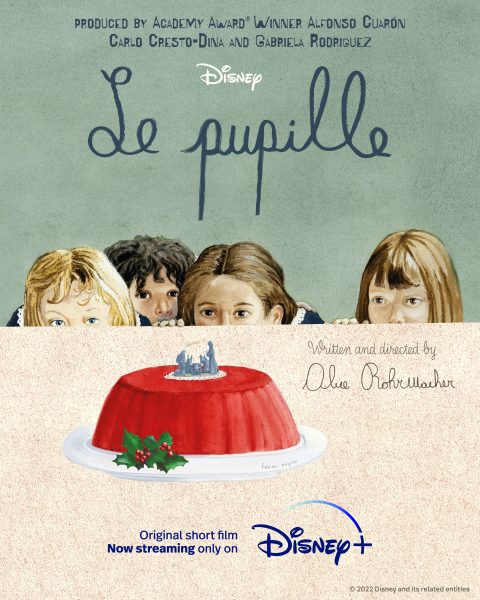
©
Le Pupille
During the production of the medium-length film drama, set in 1942, the Italian production company Tempesta avoided using diesel generators when they shoot in the historic city centre of Bologna. The production updated the electric cabling system at the main location so that most of the production services could be powered by the grid. For the second location, an abandoned church in the city centre, the crew rented a portable clean energy power station.
“The Voltstack reduced diesel consumption. It substituted the equivalent of a 7kW diesel generator on multiple shooting days, and it powered building tools as well as craft stations. It opened possibilities for new scheduling, efficiency in working hours, and a reduction of noise pollution in the city center. It reduced the prep/wrap time at the location by grips. The set design crew relied exclusively on Voltstack.”
Ludovica Chiarini, Eco Supervisor
Ludovica Chiarini, Eco Supervisor
Using the electric power station for seven days saved 176 litres of diesel. Resourceful scheduling in production meant more flexibility for the crew’s hours and more energy capacity in a more distributable timeframe. And it cut down the red tape for shooting in the historic church because there was neither noise, fumes, nor extensive cabling on set.
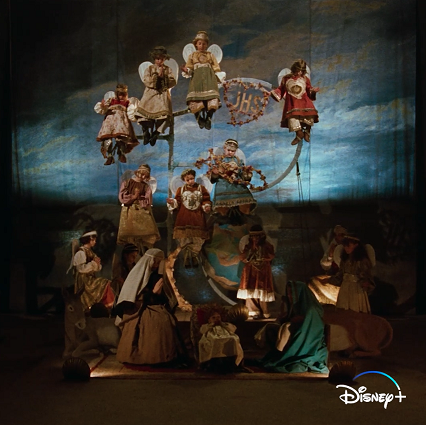
©
Liebes Kind
When filming this streaming series, Constantin Television focused on saving resources on set design and short transport routes. The four main locations were close to the production office. The set construction consisted of wooden elements from a neighbouring film production, while another set was built by using the SpeedSet system, which is made of aluminium composite panels.
The company is using profiles and aluminum composite panels which are made of recycled aluminum. The individual elements of the plug-in system can be connected without using tools. As a result, the setup takes only a fraction of the time as a traditional wood construction."
Thomas Matysiak, Green Consultant
Thomas Matysiak, Green Consultant
A major advantage of using SpeedSet is that the production can calculate exactly what the costs will be for delivery, setup, rental time, and dismantling and pick-up. Due to this kind of set construction, there are no demolition and disposal costs. In addition, prefabricated elements such as sockets are supplied, which already carry a seal of approval so that no electrician is required for their installation.
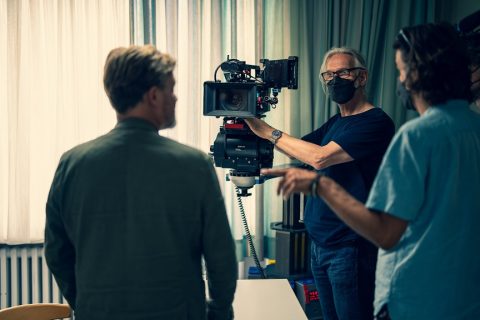
© Wolfgang Ennenbach / Netflix
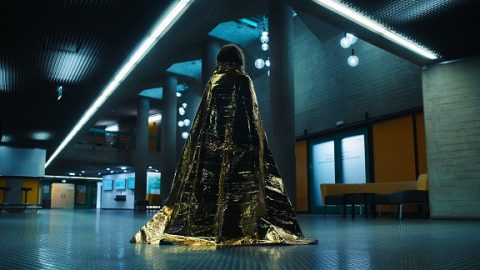
©
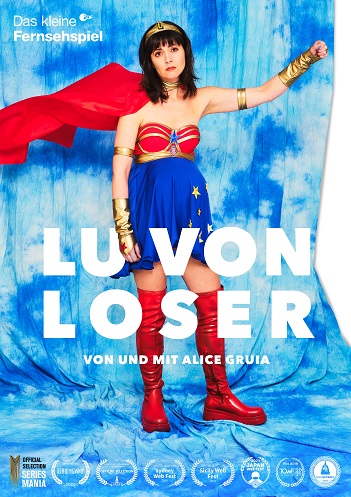
© ZDF and PATRICK ESSEX
Lu von Loser
During the production of the second season of this eight-part dramedy series, Letterbox Film Production and Darling Point used the “Green Toolbox” web tool for information and communication with the team. The catering survey led to the result that the film crew went exclusively for vegetarian-vegan food.
"Due to the 'Green Toolbox' carbon emissions could be tracked and team members were sensitized, because all heads of departments and production drivers had to collect the carbon emissions for their respective department. When refueling, production drivers were able to scan the consumption via a QR code with their smartphone."
Christopher Albrodt, Production Manager
Christopher Albrodt, Production Manager
Thanks to 25 Veggie Days vs. one Meat Day and the elimination of power current generators, the production significantly reduced its carbon emissions. The use of a power current was not required at this production. Instead of trailers for makeup, wardrobe and lounges, they used suitable premises nearby the shooting locations, and the lighting equipment consisted of LED lights. The "Green Toolbox" was developed by Roman Russo, winner of the 2022 Eisvogel – Prize for Sustainable Film Production. He also served as Green Consultant for the Lu von Loser production.
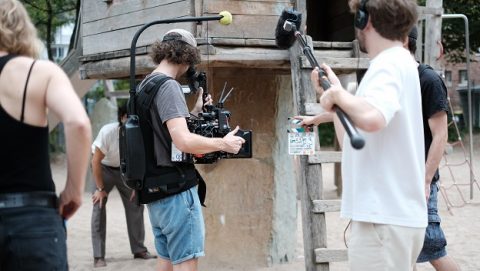
© Matteo Sant Unione/Roman Russo
Notruf Hafenkante
When Letterbox Filmproduktion shot the 17th season of the TV series in the period from spring to late fall 2022, the entire production base was powered by a 30 kW generator. Catering, makeup, wardrobe, as well as lounges, were powered by the mobile power storage unit so for the most part that the production didn’t need to use a conventional diesel generator on set.
"It was cost-saving that electricity is cheaper than diesel. However, renting the mobile power storage unit is more expensive than a conventional generator, because the lower consumption costs for the power supply don't cover the higher rental price. By eliminating noise and odor pollution, the working environment for employees has greatly improved."
Mareike Pielot, Green Consultant
Mareike Pielot, Green Consultant
The use of the mobile power storage unit reduced the consumption of diesel fuel, resulting in a saving of around 14.2 tons of carbon emissions. It also had a positive impact on the carbon calculation that the power storage unit was charged with renewables. Furthermore, “Green Thursday" was launched to provide the crew with eco-friendly tips and hints.
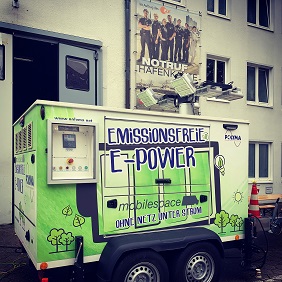
©
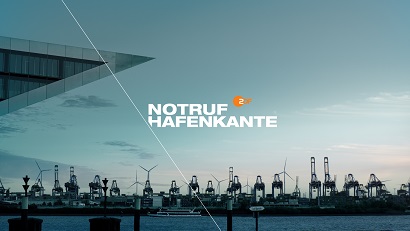
©
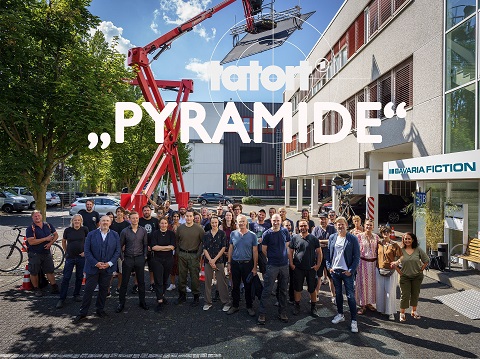
© WDR/Thomas Kost
Tatort Köln: Pyramide
Bavaria Fiction used the "Green Toolbox" for the calculation and analysis in order to track relevant consumption and carbon emissions in the different departments in advance. This enabled the heads of departments to create their own carbon calculation assumption so that the estimated consumption in the different departments became visible at an early stage of pre-production.
"Using a tool like this creates awareness among team members. They can visualize their consumption immediately and the numbers become more tangible, resulting in more mindful and reflective actions. In addition, team members can see the positive results of the green production and can participate in the improvement of the green workflow."
Tobias Wolf, Sustainability Manager
Tobias Wolf, Sustainability Manager
The use of this tool made it possible to address hotspots in the pre-production stage and to highlight potential cost savings. The savings of carbon emissions were already displayed. The Sustainability Manager of Bavaria Fiction could log into the system as an observer in order to get information about the current status and the carbon calculation of the project. The "Green Toolbox" was developed by Green Consultant Roman Russo, winner of the 2022 Eisvogel - Prize for Sustainable Film Production. As a freelancer, Green Consultant Roman Russo supervised the Bavaria Fiction production Tatort Köln: Pyramide.
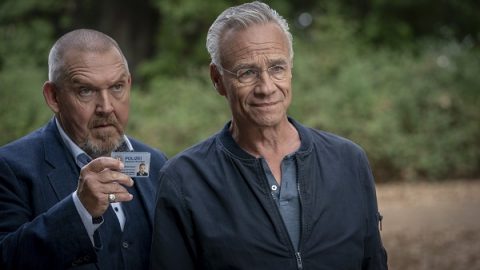
© WDR/Thomas Kost
Exit Pangea (newcomer production)
Produced between early 2021 and the end of 2022 at the Film University Babelsberg Konrad Wolf, the filmmakers took a holistic approach to the development of this graduation film. The script was written as a chamber drama in order to reduce the number of filming locations to a minimum. As part of the visual concept the lighting mainly consisted of LED lights.
"We wanted to use as little materials as possible without compromising the atmosphere of the film. The exchange between production and director/script enabled a process of collaborative decision making, which was creatively satisfying. After all, it strengthened our collaboration even if we had to give up a few things."
Sarah Dreyer, Producer
Sarah Dreyer, Producer
It was pretty easy for the crew to act eco-friendly because no single-use products were made available on set. Instead, the crew members were provided with water cans, glasses as ashtrays, rescued food, and sandwiches with organic chocolate cream instead of candy bars wrapped in plastic. A cargo bike served for transportation within Potsdam. Most of the crew members came to the set by using public transport. All measures as well as the code of conduct for shooting at the lake were explained to the team as an introduction to a positive mindset rather than a prohibition mentality.
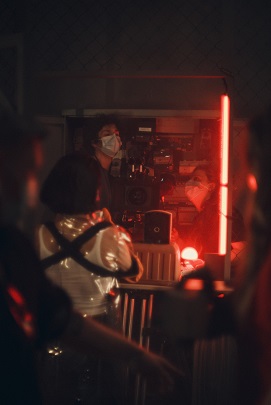
© Lewin Harnisch
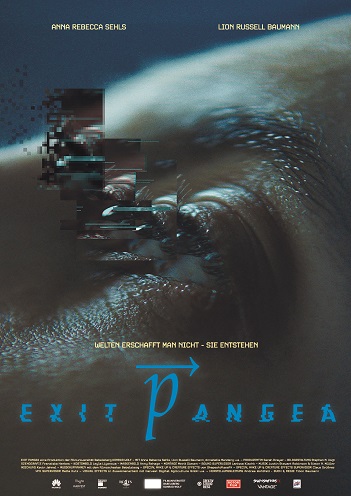
©
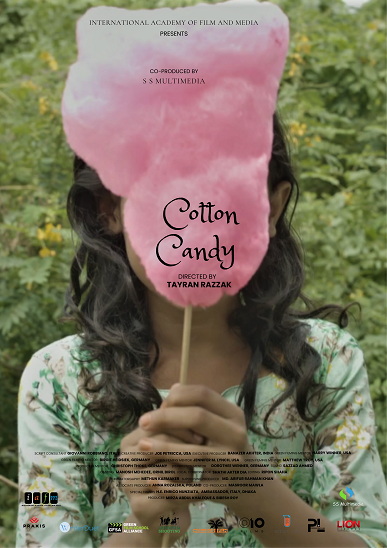
©
Cotton Candy (newcomer production)
Shot in Bangladesh during one day, this International Academy of Film and Media (IAFM) production used a minimal setting arrangement. The only prop that was rented for the film was a cotton candy machine.
“I wanted to keep the production as organic and natural to our day-to-day life as possible. The green filming approach of the production helped to strengthen that. We didn’t use any makeup for the cast and the film set was an actual home. We managed to produce no waste throughout the shooting.”
Tayran Razzak, Director of Cotton Candy
Tayran Razzak, Director of Cotton Candy
In addition to the exceptional waste management strategy, the production used locally sourced food and eco-friendly resources.
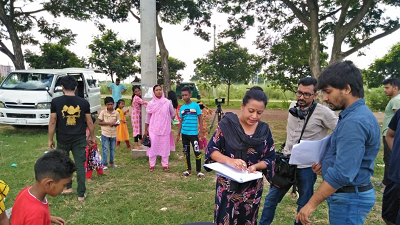
©
Isolation (newcomer production)
Produced as a short film at the International Academy of Film and Media (IAFM) in Bangladesh, the story was developed as a chamber drama, in which two adult characters withdraw from the public world and seek extreme degrees of isolation in their own way. Due to the fact that the film was shot only at one location, mobility, transport, and also the need for accommodation were limited to a minimum.
“For the location of this film, we initially chose a residential home and created a story that revolved around the existing props and sets. As a result, we minimized production costs and avoided using new materials.”
P. S. S. Gupta, Director of Isolation
P. S. S. Gupta, Director of Isolation
The film crew also used the location of the film production as accommodation. The approach of the mobility concept was to reduce transport and to use low-emission vehicles such as battery-powered rickshaws, electric scooters, and bicycles.
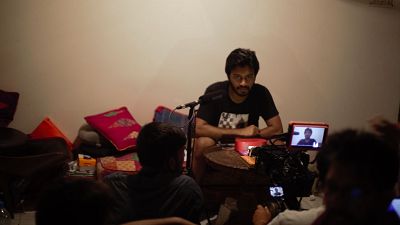
©
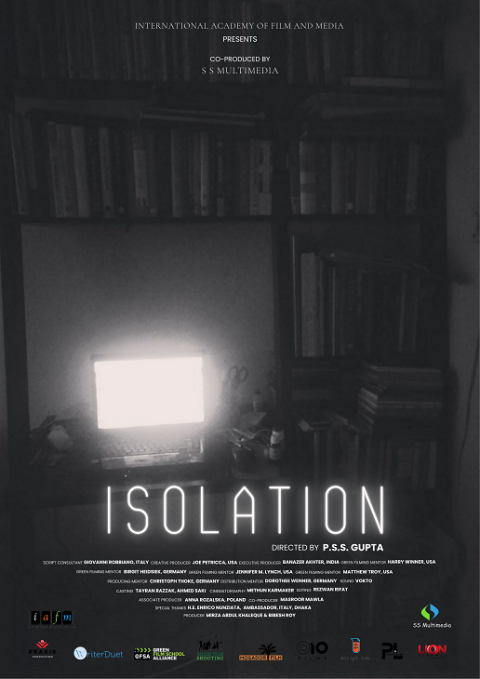
©
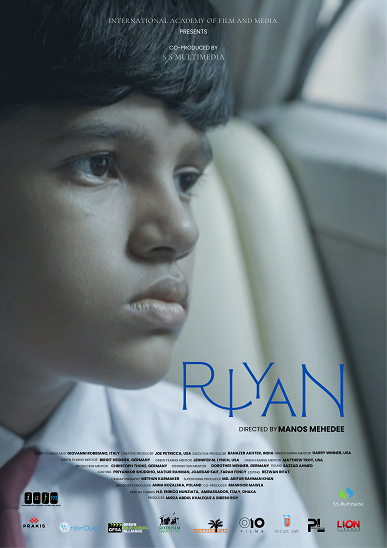
©
Riyan (newcomer production)
The production also reduced energy consumption due to efficient organization. At the preproduction stage, all meetings were taking place online. In total, the production avoided about 400 kilometres of travelling.
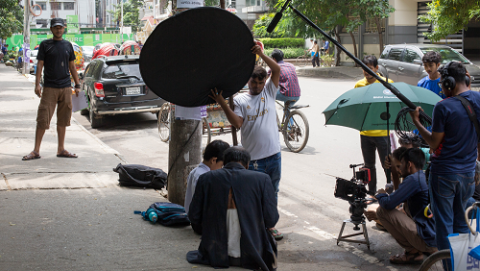
©
A Tale of a Haunted Soul (newcomer production)
Lensed with the Sony A7III camera, the film was completely shot with available light during the daytime. The use of natural light was the basis for the story, which has been developed at the International Academy of Film and Media (IAFM) in Bangladesh. As a location, the filmmaker chose a natural setting surrounded by greenery.
“In the context of the story set-up, we chose the green Hill Tracts area. In this natural location, my key prop of the film was a rickshaw, which is an eco-friendly vehicle. The decision to work with the daylight complied with our green filming approach.”
Towhid Riyadh, Director of A Tale of a Haunted Soul
Towhid Riyadh, Director of A Tale of a Haunted Soul
Due to the minimalistic concept of the film, the production was very effective in reducing its energy consumption. The film was completely shot outdoors with available light and didn’t require any further light sources. Furthermore, the costumes were contributed by the actors.
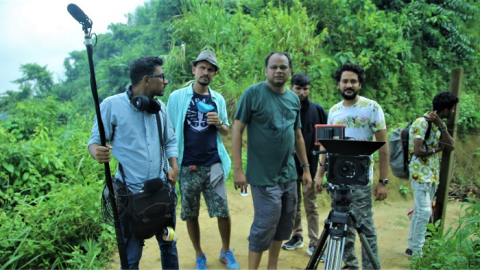
©
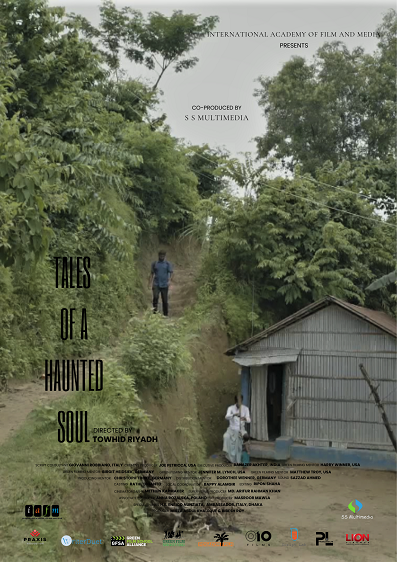
©
Award Ceremony 21/22
The award ceremony for the 2021/22 competition period took place on June 20, 2022 at a festive event in the courtyard of the Federal Ministry for the Environment in Berlin.
During this ceremony, the nominated productions were introduced to an audience of industry professionals in the presence of the competition jury. The presentation of the "Eisvogel – Prize for Sustainable Film Production" was the highlight of the event.
The award ceremony took place in the presence of the Federal Minister for the Environment and Consumer Protection, Steffi Lemke, and the Federal Government Commissioner for Culture and Media, Claudia Roth, among personally invited guests.
During this ceremony, the nominated productions were introduced to an audience of industry professionals in the presence of the competition jury. The presentation of the "Eisvogel – Prize for Sustainable Film Production" was the highlight of the event.
The award ceremony took place in the presence of the Federal Minister for the Environment and Consumer Protection, Steffi Lemke, and the Federal Government Commissioner for Culture and Media, Claudia Roth, among personally invited guests.
Award-winning Production 21/22
The Eisvogel for the competition period 2021/22 was awarded to unafilm TADO GmbH for the production “Tatort Dortmund – Gier und Angst”.
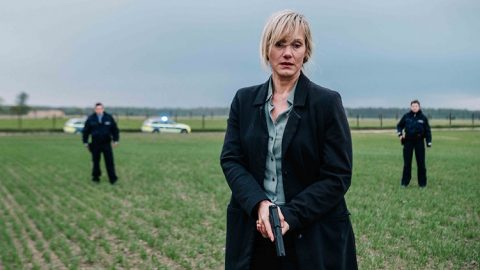
Tatort Dortmund – Gier und Angst
This TV production was shot at a total of 20 locations. In addition to implementing a variety of sustainable production measures, the lighting and camera crew was able to implement an innovative and energy-saving lighting concept. The episode was first aired on ARD on 2 January 2022.
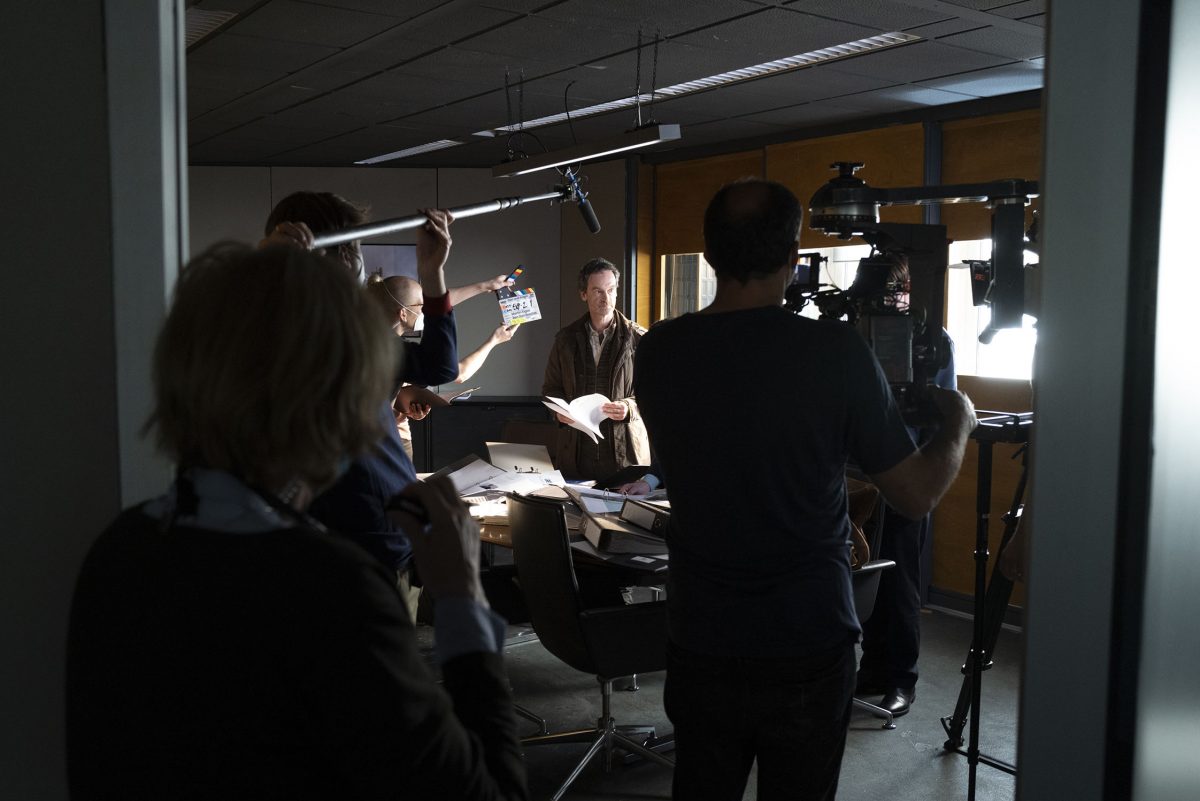
Decision of the competition jury (excerpt):
“The production “Tatort Dortmund – Gier und Angst” is characterized by a particularly coherent general approach to environment-related aspects. The concept combined a clear environmental commitment with a very systematic analysis of possible environmental hot spots and a structured plan of mitigation measures based on this analysis.
In addition to a wide range of measures to reduce the environmental impact of transport (e.g., use of low-emission vehicles and traffic-optimized planning of shots), catering (e.g., regional, seasonal, and organic-certified catering), and accommodation (e.g., consistent use of certified/resource-saving accommodations), an energy-saving lighting concept was implemented. This concept helped to reduce energy use at the set by approx. 80%.
In the opinion of the competition jury, this lighting concept constitutes an effective and readily transferable "innovation". New elements - but available on the market - and particularly bright cameras (Sony FX-6 camera) are combined with efficient and flexible light sources (LED orbiters) as well as other tools (such as skypanels) in such a way that the energy savings make it possible to shoot with "normal" power connections and without the use of a generator, even with demanding design requirements and "on location".”
In addition to a wide range of measures to reduce the environmental impact of transport (e.g., use of low-emission vehicles and traffic-optimized planning of shots), catering (e.g., regional, seasonal, and organic-certified catering), and accommodation (e.g., consistent use of certified/resource-saving accommodations), an energy-saving lighting concept was implemented. This concept helped to reduce energy use at the set by approx. 80%.
In the opinion of the competition jury, this lighting concept constitutes an effective and readily transferable "innovation". New elements - but available on the market - and particularly bright cameras (Sony FX-6 camera) are combined with efficient and flexible light sources (LED orbiters) as well as other tools (such as skypanels) in such a way that the energy savings make it possible to shoot with "normal" power connections and without the use of a generator, even with demanding design requirements and "on location".”
Nominated Productions 21/22
A pre-selection committee of experts from the Association of Technical Companies for Film & Television (vtff), the Federal Association of Green Film & TV Consultants Germany (GCD) and Green Film Shooting has thoroughly examined the 31 submissions received and selected six productions.
From these six nominated productions, the competition jury selected the final winner of the Eisvogel 21/22.
The nominated productions are briefly presented below.
From these six nominated productions, the competition jury selected the final winner of the Eisvogel 21/22.
The nominated productions are briefly presented below.
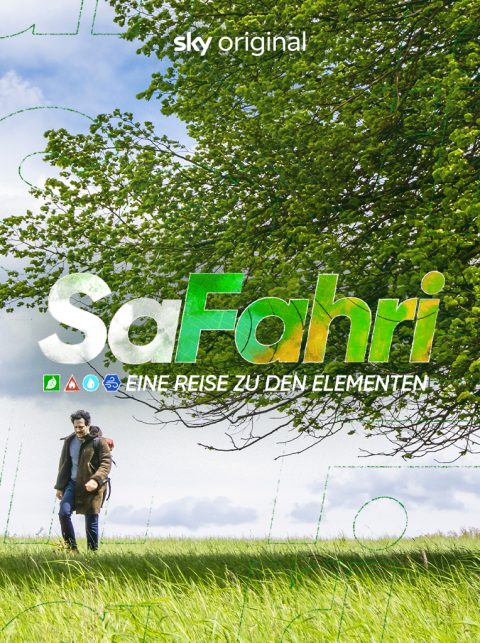
SaFahri – eine Reise zu den Elementen
This five-part documentary series was produced by Bon Voyage Films for Sky Deutschland between late 2020 and mid 2021. The shooting took place at a large number of locations, some of them in quite remote natural areas.
“The film direction and camera team considered in advance during the pre-production phase how to travel and shoot with the most energy-efficient technology and lightweight luggage possible. We didn't want to set up any elaborate technology in forests, moors and landscape conservation areas, which would have threatened the very things we wanted to film there.” Letizia Lange, Producer
“From the North Sea to the Bavarian Forest and from the North German Moor to the Swiss Alps: even the journeys to the filming locations were as consequently environmentally friendly as possible. Fahri Yardim alone travelled over 5500 kilometres by train.” Christian Asanger, VP Entertainment Sky
“From the North Sea to the Bavarian Forest and from the North German Moor to the Swiss Alps: even the journeys to the filming locations were as consequently environmentally friendly as possible. Fahri Yardim alone travelled over 5500 kilometres by train.” Christian Asanger, VP Entertainment Sky
This production by Bon Voyage Films, commissioned by Sky Deutschland, developed a very targeted technical and production concept that considers the specific features of shooting a documentary on 33 locations in often remote and sensitive ecosystems.
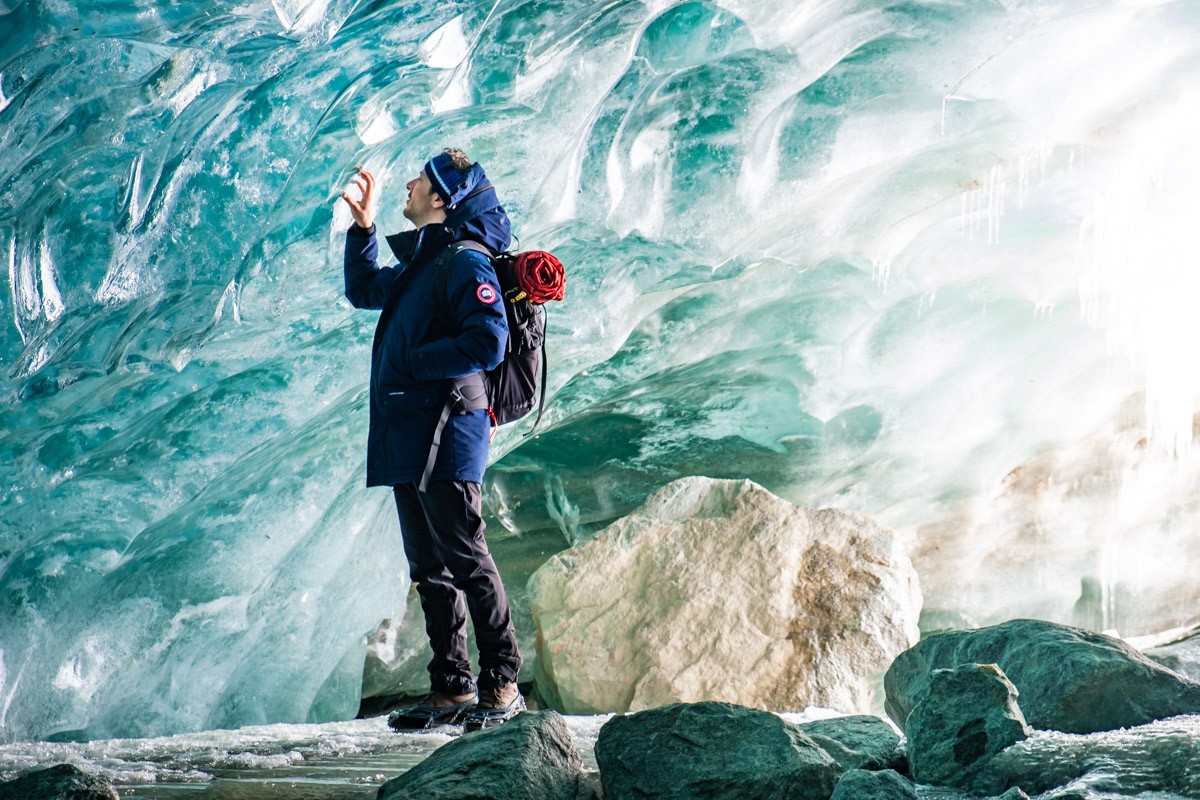
Die stillen Trabanten
This cinema film was produced in mid-2021 by Sommerhaus Filmproduktion GmbH. The movie is an adaptation of the short story collection of the same name by Clemens Meyer, directed by Thomas Stuber. Its premiere is planned by Warner Bros for the year 2022.
“This production, which has been realised according to sustainability standards, has shown that whenever production and crew give themselves the necessary time to develop innovative ideas, they often lead to an environmentally valuable goal without sacrificing creativity." Robert Hertel, Green Consultant
This co-production between Sommerhaus Filmproduktion GmbH and Warner Bros Film Productions Germany was shot “on location” in Central Germany. Various creative solutions were developed and implemented to reduce the environmental impact in the area of equipment and scenery construction.
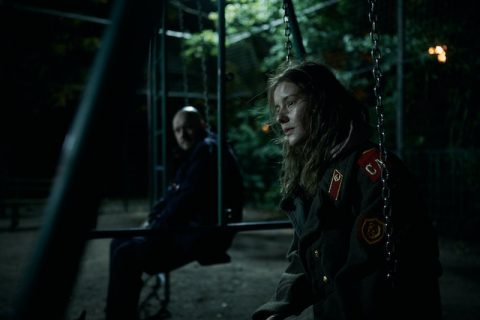
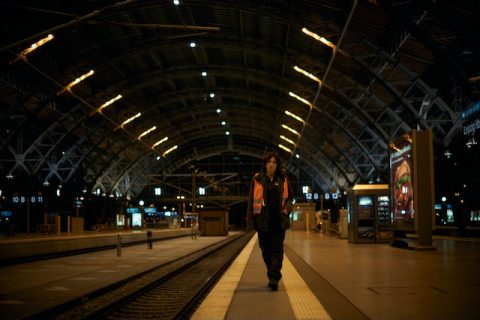
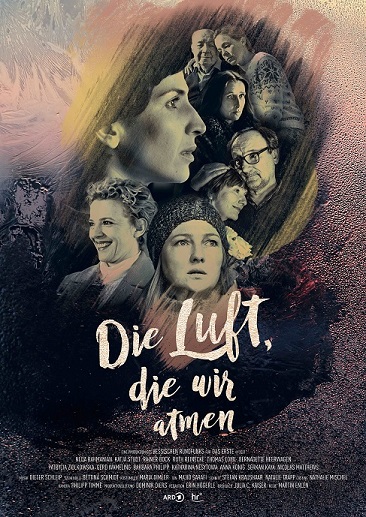
Die Luft, die wir atmen
This in-house television production by Hessischer Rundfunk (HR) was produced between March 2020 and March 2021 according to the requirements of the “100 Green Productions” of the Green Shooting Working Group. It was one of the first finished films of the project.
The HR gained important experience in sustainable production through this pilot project on green shooting. Many creative solutions developed through the motivation of those involved, such as the pragmatic use of a local farmer's rainwater storage tank for the production of artificial snow. New, innovative techniques were also tested. The realization of the first green production of the HR was also the impetus for the establishment of a sustainability network that carries the “green spirit” further into the corporation and motivates the employees to commit to more sustainability in all areas.
This in-house production of Hessischer Rundfunk is an "ensemble drama". It was shot on 16 locations, 10 of them "on location." The first broadcast will be on February 2, 2022 at 8:15 p.m. in "das Erste," and the film can also be seen in the ARD Media Center.
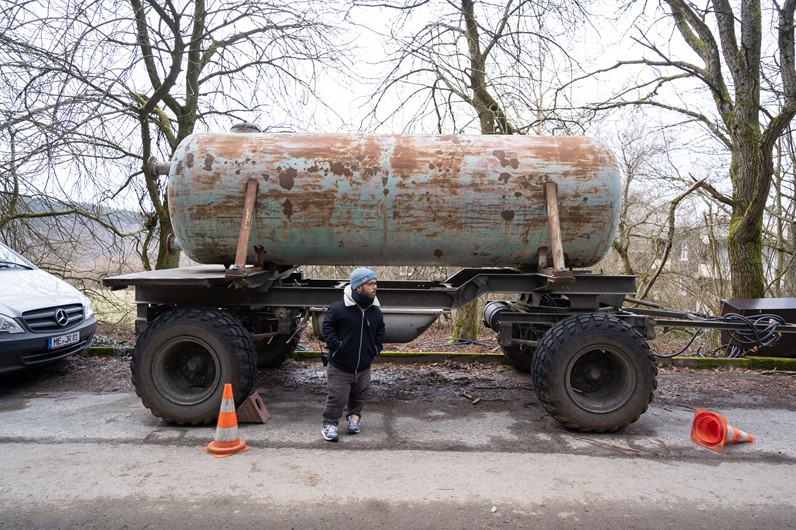
Les Incorrectes
The documentary “Les Incorrectes” (“The Unsuitables“), directed by Anne-Cécile Genre, brings the spotlight back on Alice Milliat and the beginnings of women's sport. Going back and forth between the past and the present, this documentary shows her extraordinary destiny and how today's improvements in gender equality can actually trace their roots back 100 years ago, to Milliat‘s fight for women to practice sport and compete in the Olympic Games.
“Les Incorrectes” was produced with the financial support of the Alice Milliat Foundation, the National Sports Agency (ANS) and is backed by the Comité National Olympique et Sportif Français (CNOSF). Since the beginning, eco-responsibility has been a strong commitment for Lucien TV and reducing environmental impact was a major concern from the planning stage.
“Les Incorrectes” was produced with the financial support of the Alice Milliat Foundation, the National Sports Agency (ANS) and is backed by the Comité National Olympique et Sportif Français (CNOSF). Since the beginning, eco-responsibility has been a strong commitment for Lucien TV and reducing environmental impact was a major concern from the planning stage.
"Environmental improvements are a process we strive to implement in every film we produce. In this way, we try to reduce the negative impact of our operations while maintaining a high level of quality. This process requires a high level of commitment and in particular more preparatory work in the early stages of production, but it is very satisfying." Julien Tricard, Producer and Founder of Media Club Green.
This documentary was shot in 7 different locations all over the world, normally meaning a substantial environmental impact simply due to the international flights. However, all these flights could be completely avoided: a local team was chosen for each of these locations, and carried out the production following a specific charter established by Lucien TV, reducing drastically the carbon footprint.
Thanks to the support of Secoya Eco Tournage and their innovative tool Seco2, the carbon footprint on the set of “Les Incorrectes” has been estimated and compared to what would have been the environmental impact on the same project, but without eco-responsible actions.
Thanks to the support of Secoya Eco Tournage and their innovative tool Seco2, the carbon footprint on the set of “Les Incorrectes” has been estimated and compared to what would have been the environmental impact on the same project, but without eco-responsible actions.
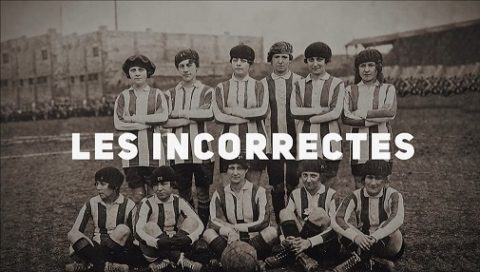
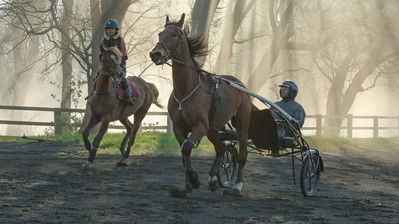
©
Tempête
The film Tempête by Christian Duguay is based on the novel “Tempête au haras” by Chris Donner. The fictional feature film was produced in spring 2021 by Nolita Cinema on a total of 11 locations in France. The production was consciously planned and carried out according to ecological and social sustainability aspects.
"Faced with the socio-climatic challenges and aware of the need for change, Nolita has integrated the idea that a clear commitment to sustainable film production is a great chance to create new opportunities for film industry. Nolita believes that a sustainable and responsible transformation is essential to the sustainability of our business.” Valentine Gaffinel, Production Coordinator
With the support of green film experts of Secoya, a large number of environmentally friendly approaches and measures were already assessed regarding their feasibility during production planning. Some of these measures were successfully implemented, such as organic food catering and the use of public transportation or electric vehicles for mobility.
In the area of scenery construction, the input of environmentally harmful substances was reduced in an innovative way. A new type of mobile device was used to clean painting tools and painted materials.
In the area of scenery construction, the input of environmentally harmful substances was reduced in an innovative way. A new type of mobile device was used to clean painting tools and painted materials.
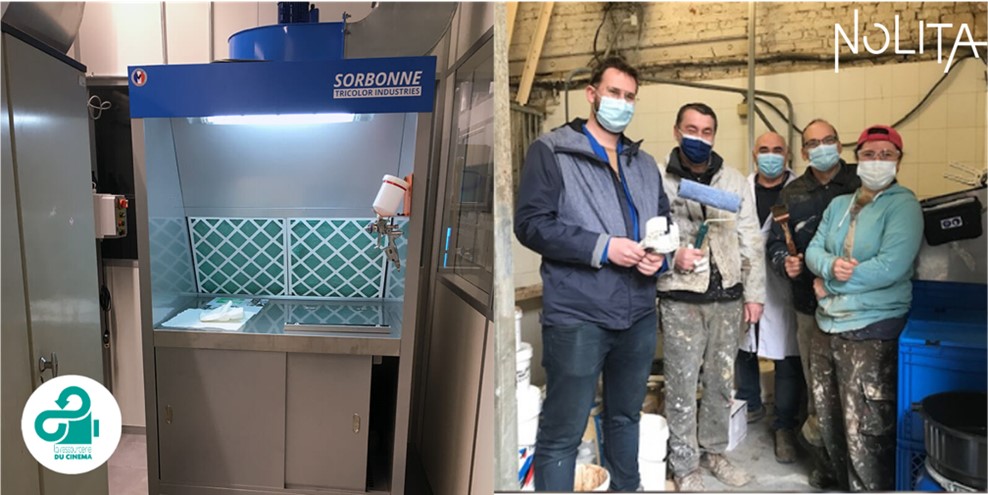
©
Newcomer Productions 21/22
In addition to the nominated productions, two newcomer productions were selected by the experts of the pre-selection committee, which have systematically analysed the environmental impacts of their productions and found creative solutions to reduce them in an outstanding way within a very limited budget.
These newcomer productions will be honoured separately at the EISVOGEL 21/22 award ceremony “out of competition”.
These two newcomer productions are presented briefly below.
These newcomer productions will be honoured separately at the EISVOGEL 21/22 award ceremony “out of competition”.
These two newcomer productions are presented briefly below.
Metanoia
Metanoia is a low-budget production by newcomer filmmakers from Berlin which was produced independently of film academies and funded by the RISE project of the media education organisation JFF.
Producer Thea Herrmann and director Alina Podschun have made an explicit commitment to a green production approach and signed corresponding industry agreements. This clear commitment motivated the entire crew to support and implement environmentally related measures.
Producer Thea Herrmann and director Alina Podschun have made an explicit commitment to a green production approach and signed corresponding industry agreements. This clear commitment motivated the entire crew to support and implement environmentally related measures.
Measures such as the avoidance of individual car journeys, a reduction in the number of filming locations, a fully vegan catering and many others were implemented. Overall, the CO2 footprint of the production was significantly reduced, as shown by the corresponding analyses of a CO2 calculator.
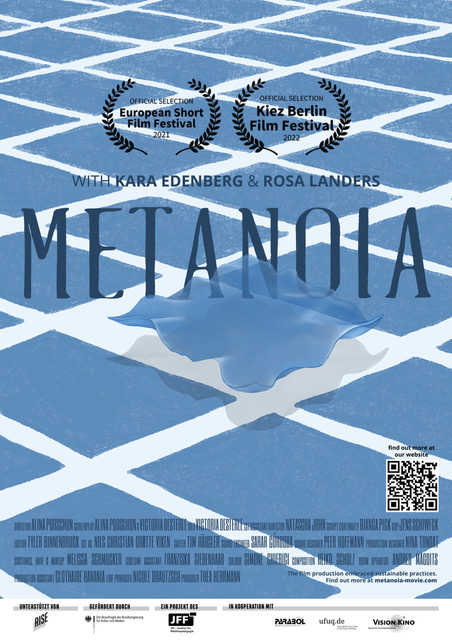
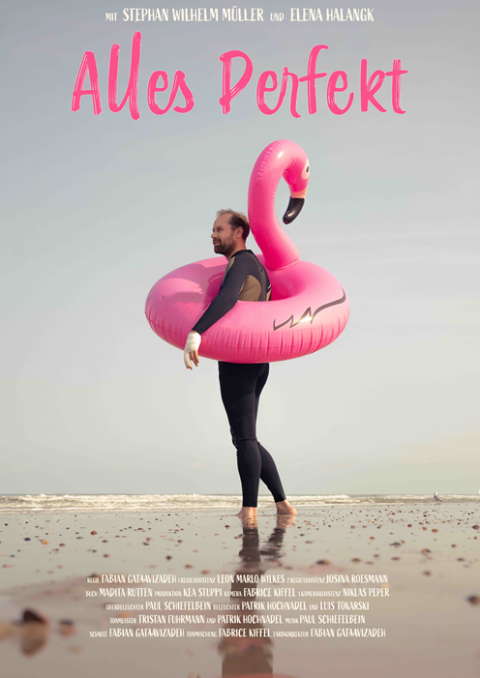
Alles Perfekt
The short film "Alles Perfekt", a low-budget production shot in mid-2020, is a student production with which Fabian Gataavizadeh successfully completed his directing studies at the Ruhrakademie in Schwerte. As part of the production, there was proactive preparation and planning of the shoot in terms of green practices.
The pre-planning and implementation of the production was accompanied by a carbon footprint. This helped to uncover environment-related weak points even before the shoot and to find more sustainable solutions.
For example, hiring handcarts was a creative way to transport material to the beach. Other solutions included vegetarian catering throughout the entire production, the purchase of second-hand costumes and equipment, as well as donating it after the end of the production.
For example, hiring handcarts was a creative way to transport material to the beach. Other solutions included vegetarian catering throughout the entire production, the purchase of second-hand costumes and equipment, as well as donating it after the end of the production.
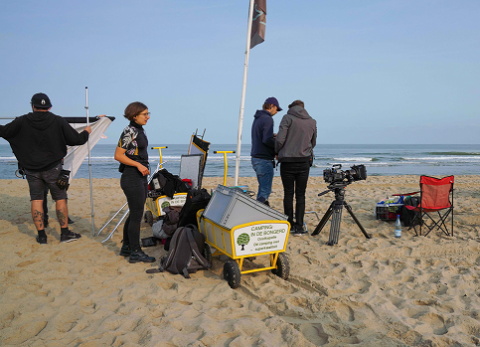
Impressions of the Award Ceremony 21/22
The award ceremony for the 2021/22 competition period took place on June 20, 2022 in the presence of the Federal Minister for the Environment and Consumer Protection, Steffi Lemke (BMUV), and the State Minister for Culture and Media, Claudia Roth (BKM).
Below are some picture impressions of the ceremonial act in the courtyard of the Federal Ministry for the Environment in Berlin. The recording of the livestream of the event is available here.
Below are some picture impressions of the ceremonial act in the courtyard of the Federal Ministry for the Environment in Berlin. The recording of the livestream of the event is available here.
Welcoming words and introduction to the Eisvogel award
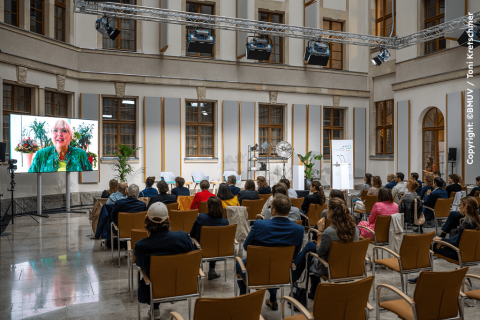
Federal Government Commissioner for Culture and Media, Claudia Roth (BKM), frames the Eisvogel in the context of the industry's sustainability activities during a video message.
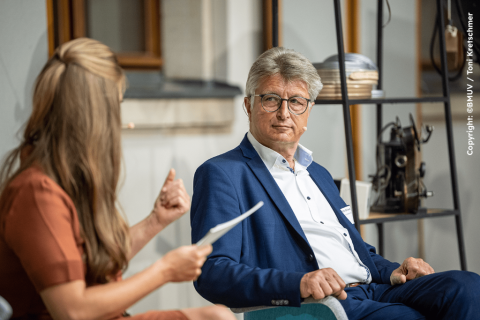
Dr. Fritz Brickwedde explains the reasoning behind why the Heinz Sielmann Foundation sponsored the Eisvogel Award.
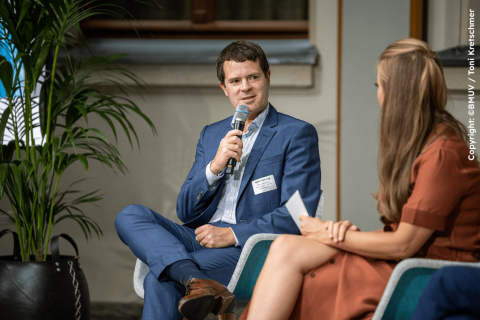
Björn Böhning from the Producers Alliance (Allianz Deutscher Produzenten – Film & Fernsehen e.V.) emphasizes the importance of sustainability in today's film productions.
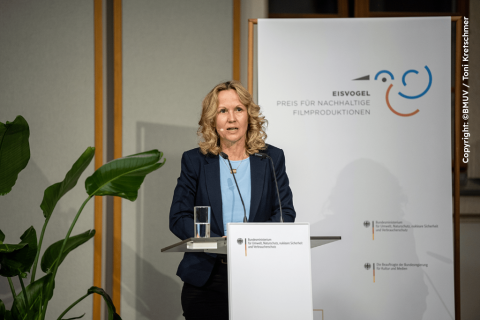
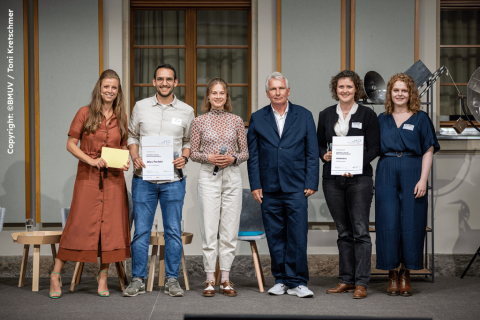
Presentation of the nominated Productions
The "newcomers", that participated "out of competition" in this competition period, are acknowledged first: The moderator Nina Eichinger and the speaker of the competition jury Michael Beier (Heinz Sielmann Foundation) present the newcomer productions "Metanoia" (represented by Alina Podschun and Thea Herrmann) and "Alles Perfekt" (represented by Fabian Gataavizadeh and Josina Roesmann) with their certificates of recognition.
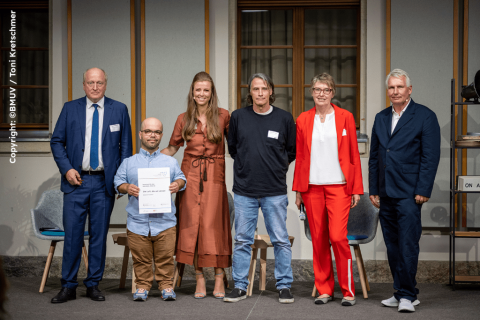
The representatives of the nominated production "Die Luft, die wir atmen" by Hessischer Rundfunk (Robert Hertel, Dominik Diers and Gabriele Holzner) receive a nomination certificate from jury member Peter Dinges (German Federal Film Board (FFA)) and Nina Eichinger.
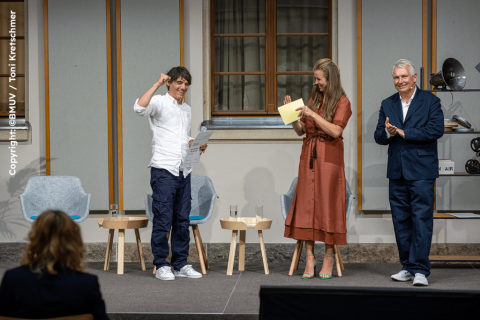
Presentation of the nomination certificate for the production "Tatort - Gier und Angst" by una TADO GmbH (represented by Roman Russo) by Nina Eichinger and Michael Beier (Heinz Sielmann Foundation).
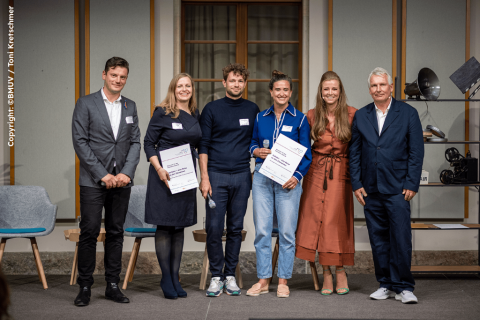
The representatives of the production "SaFahri - Eine Reise zu den Elementen" by Sky Deutschland (represented by Friederike Lina Schüler and Fabian Klaus) and Bon Voyage Films (represented by Letizia Lange) receive the nomination certificates from Oleg Jampolski (ndF: neue deutsche Filmgesellschaft mbH), Michael Beier (Heinz Sielmann Foundation) and Nina Eichinger.
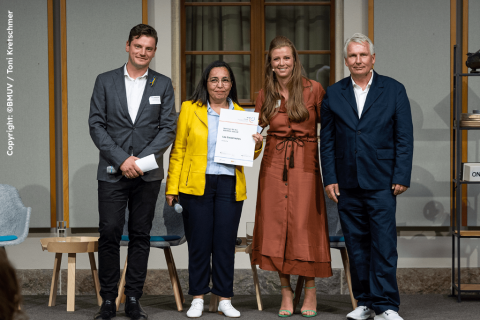
The nomination certificate for the production "Les Incorrectes" is received by Sofia Saá (Film and Media Attachée) on behalf of the French production company Lucien Production. Oleg Jampolski, Michael Beier and Nina Eichinger congratulate.
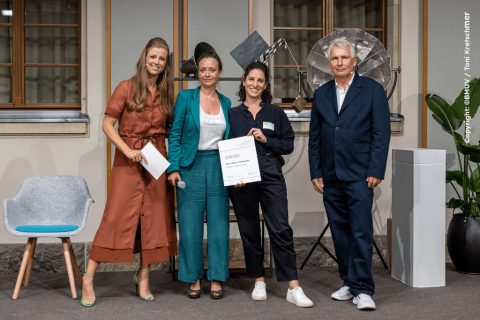
On behalf of Sommerhaus Filmproduktion, Katarina Chaimanta and Sophie Cocco receive the nomination certificate from Nina Eichinger and Michael Beier.
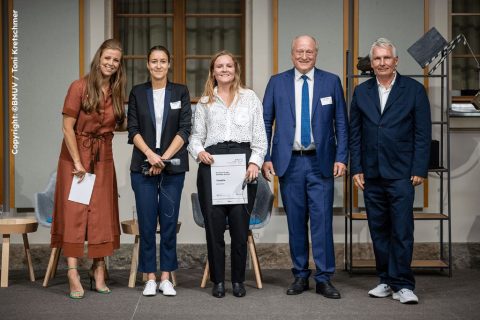
The appreciation of the nominated French production "Tempête" by Nolita Filmproduktion (represented by Alice Baudoin and Valentine Gaffinel) is handed over by Peter Dinges (German Federal Film Board (FFA)) and Nina Eichinger.
Awarding of the Eisvogel 21/22
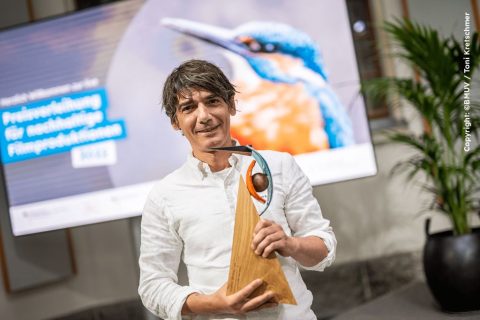
Winner Roman Russo, who accompanied the successful production "Tatort - Gier und Angst" by una TADO GmbH as a Green Consultant with the Eisvogel sculpture.
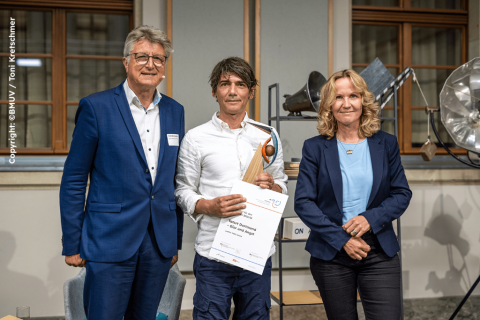
Federal Minister for the Environment and Consumer Protection, Steffi Lemke (BMUV), and Dr. Fritz Brickwedde (Heinz Sielmann Foundation) frame the representative of the winning production Roman Russo.
